Debt Consolidation
Owning a credit card can be a wonderfully convenient thing for many consumers. However, recent credit card debt statistics point to a growing problem that consumers have keeping their debt under control.
To get you back on track, we'll walk you through all of the options you have to eliminate that credit card debt. We've got a two-part series on creating a household budget, and if you considering debt consolidation, we'll explain some of the services offered by that industry such as debt counseling, debt settlement and debt consolidation loans.
- Our guide to debt consolidation will help you realize the financial freedom you deserve. If you're like many Americans, your credit card debt may be reaching a level where you're not as comfortable as you used to be. We have a lot of information to help you get back on track, and stay that way.
- The process of working with creditors to see if more favorable payment arrangements can be made between the lender (or creditor) and borrower (or debtor) is called debt negotiation. Typical claims by debt negotiation service providers include the ability to reduce unsecured debt, such as credit card debt, by 10 to 50%.
- The term debt settlement refers to the outcome of the debt negotiation process. Debt settlement, also known as debt arbitration, takes place between the debtor (borrower) and creditor (lender), when the debtor is unlikely to make payments in-full on the money owed.
- A debt consolidation service provider can help assemble outstanding debts into a single loan, requiring just one monthly payment. This service also enables individuals to convert smaller debts, such as outstanding credit card balances, into a larger loan with a lower interest rate. In this article, we're going to talk briefly about overspending, and how it can quickly lead to problems. Then we'll take a page from the business world and discuss how budgets can help with personal finances too. Next, we'll talk about alternatives such as negotiating with creditors. Finally, we'll talk about consolidation services, including a specialized...
- There are a number of advantages debt consolidation loans have to offer, but the commitment is significant. By taking a variety of debt and consolidating it, the risk associated with default on each of the individual loans is now in one place.
Credit Cards and Personal Debt
Carrying around a personal credit card can be extremely convenient, sometimes too convenient. If you're one of those persons with a lot of credit card debt, statistics indicate that you're not alone. If you'd like some pointers on how to get that credit card debt back under control, or you have been thinking about talking to your creditors about a settlement, this is where you want to begin your research:
 One of the reasons merchants allow customers to pay with credit cards is they don't have to worry about collecting the money charged. That burden falls on the shoulders of the card issuing company. These same companies are experts at collecting money from customers, and they don't like to settle for anything less than payment in full.
One of the reasons merchants allow customers to pay with credit cards is they don't have to worry about collecting the money charged. That burden falls on the shoulders of the card issuing company. These same companies are experts at collecting money from customers, and they don't like to settle for anything less than payment in full. Anyone that's been thinking about making a large purchase, such as a new home or car, might be faced with a decision that involves the purchase of credit insurance too. In this article, we're going to discuss the pros and cons of buying this insurance, as well as choices available to consumers today. Credit insurance is often sold to consumers in the process of making a large purchase such as a new car or home. The insurance purchased can be used to pay off the outstanding loan balance if the borrower becomes disabled or passes away.
Anyone that's been thinking about making a large purchase, such as a new home or car, might be faced with a decision that involves the purchase of credit insurance too. In this article, we're going to discuss the pros and cons of buying this insurance, as well as choices available to consumers today. Credit insurance is often sold to consumers in the process of making a large purchase such as a new car or home. The insurance purchased can be used to pay off the outstanding loan balance if the borrower becomes disabled or passes away.- One of the increasingly popular ways to pay for elective health care services is the medical credit card. These specialized cards offer patients the convenience of paying for medical care using a credit card that provides attractive payment terms too.
- It's a great feeling to get a "bargain" when shopping. That's something all marketers hope for when offering retail credit cards to consumers. Discounts are great, but there is a down side of accepting these deals too.
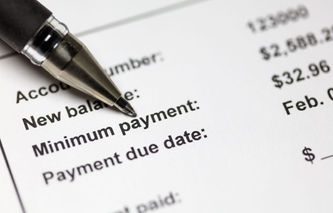 In an effort to drive down outstanding credit card balances, the Office of the Comptroller asked banks to institute new standards when calculating minimum required credit card payments. While the change resulted in higher monthly minimums for some cardholders, it's helping to lower credit card debt too.
In an effort to drive down outstanding credit card balances, the Office of the Comptroller asked banks to institute new standards when calculating minimum required credit card payments. While the change resulted in higher monthly minimums for some cardholders, it's helping to lower credit card debt too.
Debt Elimination Basics
Our debt elimination basics provide you with an overall stepwise process to move from less aggressive forms of debt elimination such as budgeting, to more aggressive forms of debt elimination. If you're thinking about declaring personal bankruptcy, you're starting at the end of the road. You have a lot more options that you might want to explore first:
- In a down economy, this story is all too familiar. Individuals wake up one day to find themselves overwhelmed by debt. Money has been spent faster than it's coming into the household. At the extreme, the debt load is so out-of-balance that bankruptcy appears to be the only alternative.
- Owning a credit card is a convenient alternative to carrying cash. But these cards have their drawbacks too, especially if the desire to buy goods or services overshadows the ability to pay for them. Prepaid debit cards offer consumers both the convenience of electronic purchases, as well as protection against overspending.
- The years of carrying a significant amount of cash are long gone. Paper bills and coins were replaced by credit cards, and a lot of them. Over time, the need for "specialty" cards waned as consumers decided it was time to streamline monthly payments. Today, there are really only two choices: a credit or a debit card.
 It's uncomfortable to be in debt; no one likes the feeling of being out of control, especially when it comes to their personal finances. Individuals in this situation have two problems to solve: getting out of debt, and staying out too. In this article, we're going to start by talking about some of the signals that indicate a problem could be on the horizon. Next, we'll explain some of the habits that help individuals to eliminate debt. Finally, we'll talk about the steps borrowers can take to stay out of debt.
It's uncomfortable to be in debt; no one likes the feeling of being out of control, especially when it comes to their personal finances. Individuals in this situation have two problems to solve: getting out of debt, and staying out too. In this article, we're going to start by talking about some of the signals that indicate a problem could be on the horizon. Next, we'll explain some of the habits that help individuals to eliminate debt. Finally, we'll talk about the steps borrowers can take to stay out of debt.
Household Budgets
Household budgeting is the first step we usually recommend when it comes to getting your personal finances back in shape. Here we teach you the basics of running your home like a business, and a profitable one at that. There are many helpful tools we provide too, like free budget spreadsheets that you can download:
- Young adults are taught many things in school, but simple home economics concepts like balancing a budget are often overlooked. Without a plan, it's nearly impossible to meet the savings goals individuals and families need to reach their financial freedom. In this article, we're going to explain the basics of household budgeting. This includes how to identify a home's sources of income as well as mandatory and discretionary expenses. We're also going to talk about savings targets, and why they're important. Finally, we're going to finish up with a template that everyone can use to create their own monthly budget.
- Creating a budget is arguably the first line of defense against runaway debt. It provides the end user with a clear picture of both sources of income and household expenses.
- In the first part of this two-part series, we explain how to find a spreadsheet application and provide a downloadable budget worksheet. We also walked through the first step in the process, which is identifying sources of household income.
- There is one fact about money most people will agree with: There never seems to be enough of it. Paying bills can be stressful, and the lack of financial resources can strain relationships too. Fortunately, creating a budget can help families to plan their expenses and meet their monthly obligations.
- When household income is greater than household expenses, it's possible to save money, either through small changes or strategic moves. On the other hand, when income is less than expenses, the household is going into debt.
- According to the National Bureau of Economic Research, the United States entered the Great Recession in December 2007. While economists might define a recession as a reduction in a country's gross national product, individual families might be faced with extreme financial hardships, including the loss of a job. In this article, we're going to provide some tips that can help families survive a recession. As part of that explanation, we're first going to describe what to expect during an economic downturn. By first gaining this knowledge, it will be easier to understand how to create a plan that helps ease...
- The loss of a loved one is never easy. Until that deep mourning is over, it's also not a good time to make decisions with long term implications. Eventually, clarity of thought will return and it may be necessary to do some financial planning after the death of a husband, wife, relative, or close friend. In this article, we'll be talking about some of the actions to take following a death in the family, or that of a close friend. As part of that discussion, we'll split this topic into two parts: Those action items requiring near-term follow-up, and...
Debt Counseling and Management
Many times debt starts to build because of a social, emotional, or financial hardship that has befallen a family. It's sometimes difficult to get back on your feet by yourself. That means a good debt counselor can help you with important items like setting up a budget, as well as making sure any outstanding social problems have been addressed:
- Also known as credit counselors, a debt counselor is a trained professional that can assist individuals experiencing a financial crisis to develop a plan to reduce, eliminate, or better manage debt. Debt counselors can use a variety of methods to help individuals, including techniques such as budgeting, debt negotiation, and debt consolidation.
- The ability to manage debt is extremely important to the financial wellbeing of any household. If mismanaged, bills can quickly increase; reaching a point where making payments become difficult or nearly impossible.
- You can use this wage garnishment calculator to estimate the amount of dollars withheld from a paycheck. The calculator follows both the U.S. Department of Labor as well as the Department of Education's wage garnishment guidelines to calculate the impact on the debtor's pay. The calculator considers gross pay, income taxes, as well as mandatory payments in the calculation of the wage garnishment value.
- Anyone that owes someone money, or is ordered by a court to send money to another party as part of a legal settlement, is at risk for wage garnishment. Laws dealing with wage garnishment are aimed at both ensuring the party owed money receives payment, as well as offering protection of the debtor's wages. In this article, we're going to talk about the topic of wage garnishment. As part of that discussion, we'll first talk about the term itself, typical debts associated with this process, and the procedure employers must follow when enforcing a court order. Next, we'll explain...
- You can use this debt-to-income ratio calculator, also referred to as a DTI calculator, to figure out if you might be at risk of carrying too much debt or if you qualify for a loan of a given size. In general, lenders apply certain rules when evaluating someone that has applied for credit. The calculator performs both front-end, as well as back-end debt-to-income calculations.
Personal Loans
Here is another category of personal loans, several of which are considered non-traditional. The practices of these lenders can be considered greedy at times, and may even be considered predatory when taken to the extreme.
- A car title loan uses the vehicle as collateral. These loans afford borrowers the opportunity to acquire short-term cash in as little as fifteen minutes. Unfortunately, this speed and convenience come at a cost to the consumer. In this article, we're going to discuss the topic of car title loans. Also known as car collateral loans, title loans, and pink slip loans, we'll talk about the predatory lending practices that sometimes accompany these offers. We'll also discuss some of the practical alternatives to borrowing money through title loans. But first, we're going to review the structure of these deals.
 The rent-to-own business involves dealers that rent homes, furniture, cars, appliances, electronics, and jewelry to consumers. This arrangement provides the customer with immediate access to these assets for relatively low weekly or monthly payments. In this article, we're going to cover the lease-to-own, rent-to-own, or RTO, industry. Since this business sector has such a wide reach, from homes to electronics, we will not be going into the specifics of any one transaction. Instead, we will provide generalized information on the RTO process.
The rent-to-own business involves dealers that rent homes, furniture, cars, appliances, electronics, and jewelry to consumers. This arrangement provides the customer with immediate access to these assets for relatively low weekly or monthly payments. In this article, we're going to cover the lease-to-own, rent-to-own, or RTO, industry. Since this business sector has such a wide reach, from homes to electronics, we will not be going into the specifics of any one transaction. Instead, we will provide generalized information on the RTO process.- Individuals in need of a short term loan can use their tax refund as collateral. While this affords taxpayers fast access to their refund dollars, this convenience comes with a high price.
- If a cash advance is needed to cover short-term expenses, borrowers have the option of taking out a payday loan. As the name implies, this type of loan is paid back when the borrower receives his or her next paycheck.
 Lending a hand to close family members when they ask for help is a natural inclination. This generosity is often demonstrated when relatives agree to co-sign a loan. But entering into any arrangement involving money requires careful consideration; cosigning a loan is a big financial commitment. In this article, we're going to be talking about the pros and cons of cosigning a loan. That discussion will include the factors to consider before helping, as well as the long-term impact this type of arrangement can have on both parties' personal finances. We'll also cover several specific examples such as student loans,...
Lending a hand to close family members when they ask for help is a natural inclination. This generosity is often demonstrated when relatives agree to co-sign a loan. But entering into any arrangement involving money requires careful consideration; cosigning a loan is a big financial commitment. In this article, we're going to be talking about the pros and cons of cosigning a loan. That discussion will include the factors to consider before helping, as well as the long-term impact this type of arrangement can have on both parties' personal finances. We'll also cover several specific examples such as student loans,...
Bankruptcy and Credit Reporting
If you think bankruptcy is the answer to all your problems, then you need to make sure you understand exactly what can happen to your personal property. If you know a friend that declared bankruptcy in the past, then you should know the bankruptcy laws have changed. It's much harder today to have all your debt forgiven, and bankruptcy can hurt your credit rating for years to come:
- Over the past decade, we've seen lower interest rates, a broken housing market, and virtually unlimited options when it comes to personal loans. The end result is that Americans are borrowing money at a record pace; consumer debt is on the rise.
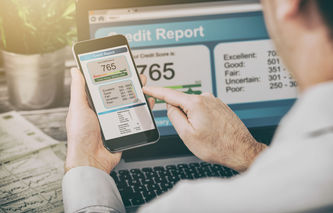 Unless someone's independently wealthy, a credit score is an important number and can determine their financial well-being. Scores are used by both lenders and creditors to predict if an individual is going to pay their bills promptly; thereby influencing decisions to extend credit or approve a loan.
Unless someone's independently wealthy, a credit score is an important number and can determine their financial well-being. Scores are used by both lenders and creditors to predict if an individual is going to pay their bills promptly; thereby influencing decisions to extend credit or approve a loan. Fair Isaac instituted changes to its credit scoring formula to "ensure the continued reliability and predictive powers of FICO scores." The new model, named FICO 08, made its way into the credit scoring process back in 2009. The new model replaced the existing model, which remained relatively unchanged since the 1980s.
Fair Isaac instituted changes to its credit scoring formula to "ensure the continued reliability and predictive powers of FICO scores." The new model, named FICO 08, made its way into the credit scoring process back in 2009. The new model replaced the existing model, which remained relatively unchanged since the 1980s.- Creditors and lenders often refer to an individual's FICO® score when evaluating their risk of non-payment. These numerical values are oftentimes the way companies decide if they need a deposit before providing service. They're also used by lending institutions to determine the interest rate charged on a loan.
- Financial institutions, as well as companies, will usually check an individual's credit score before extending new credit, or lending money. Better scores can mean lower interest rates on a loan, or eliminate the need to provide a deposit before receiving service from a utility.
- The credit industry continues to evolve, and the latest development is the migration from the traditional FICO score to what's called VantageScore. The scale of this score varies from FICO, so the numerical value of what's considered a good score has changed too.
 In an attempt to better service the creditworthiness assessment market, several of the reporting bureaus have announced what are termed "thin-file" credit scores for individuals with little or no history. By doing so, these bureaus allow lenders to reach an under-served market of Americans with little or no traditional debt repayment records.
In an attempt to better service the creditworthiness assessment market, several of the reporting bureaus have announced what are termed "thin-file" credit scores for individuals with little or no history. By doing so, these bureaus allow lenders to reach an under-served market of Americans with little or no traditional debt repayment records.- While some companies may loosely use the term "credit report," there are only three companies in the United States that compile and publish credit information on consumers: TransUnion, Equifax, and Experian. These three agencies are used by creditors to figure out the risk they are taking when lending money to consumers.
 The purpose of the Fair Credit Reporting Act, or FCRA, was to establish the ground rules for consumer credit reporting agencies. These rules allow agencies to fulfill their role as suppliers of credit information to the commerce market, while at the same time protect the privacy and rights of consumers. The intention of the FCRA is to be fair to consumers, while making sure the reports are as accurate as possible. In this article, we'll discuss the structure of credit reports, their accuracy, privacy protections, and how to remove outdated information from a credit report.
The purpose of the Fair Credit Reporting Act, or FCRA, was to establish the ground rules for consumer credit reporting agencies. These rules allow agencies to fulfill their role as suppliers of credit information to the commerce market, while at the same time protect the privacy and rights of consumers. The intention of the FCRA is to be fair to consumers, while making sure the reports are as accurate as possible. In this article, we'll discuss the structure of credit reports, their accuracy, privacy protections, and how to remove outdated information from a credit report.- Back in 2005, there were several important changes to the laws governing the bankruptcy process. That was good news for the credit card industry, which had been pushing for tougher bankruptcy laws for nearly ten years.
 Back in 2005, Congress passed into law some wide-reaching changes to the bankruptcy process. At the time, it seemed these laws were aimed at making it even more unpleasant for individuals to file for Chapter 7 protection. However, one of the unintended consequences of that legislation appears to be an increase in the cost of bankruptcy.
Back in 2005, Congress passed into law some wide-reaching changes to the bankruptcy process. At the time, it seemed these laws were aimed at making it even more unpleasant for individuals to file for Chapter 7 protection. However, one of the unintended consequences of that legislation appears to be an increase in the cost of bankruptcy. Businesses that are no longer interested in continuing to operate, or individuals that do not have enough income to repay their debt, can seek protection from creditors by filing a Chapter 7 petition in bankruptcy court. But filing for Chapter 7 comes at a great cost. It requires the debtor to selloff their assets and can damage credit ratings.
Businesses that are no longer interested in continuing to operate, or individuals that do not have enough income to repay their debt, can seek protection from creditors by filing a Chapter 7 petition in bankruptcy court. But filing for Chapter 7 comes at a great cost. It requires the debtor to selloff their assets and can damage credit ratings. When businesses and individuals are failing to meet their financial obligations, they have the ability to file for bankruptcy protection. Unlike Chapter 7, which involves the liquidation of assets, Chapter 11 allows the company to remain in control, while a court oversees the operation of that business. In this article, we're going to cover the topic of Chapter 11 bankruptcy, sometimes referred to as "reorganization" or "debtor in possession." As part of that coverage, we're going to examine some of the rules of the process. We'll also explain the eligibility requirements, as well as the advantages and disadvantages of filing...
When businesses and individuals are failing to meet their financial obligations, they have the ability to file for bankruptcy protection. Unlike Chapter 7, which involves the liquidation of assets, Chapter 11 allows the company to remain in control, while a court oversees the operation of that business. In this article, we're going to cover the topic of Chapter 11 bankruptcy, sometimes referred to as "reorganization" or "debtor in possession." As part of that coverage, we're going to examine some of the rules of the process. We'll also explain the eligibility requirements, as well as the advantages and disadvantages of filing... Also known as individual debt adjustment, a Chapter 13 bankruptcy proceeding allows individuals with a source of regular income to build a plan to repay some, or all, of their debts. Within this process, repayment to creditors occurs over the course of three to five years. In this article, we're going to run through the basics of Chapter 13 bankruptcy. As part of that explanation, we're going to review some of the rules of the process, eligibility requirements, in addition to the advantages and disadvantages of filing under Chapter 13. Finally, we'll talk about completing the repayment plan, and discharge...
Also known as individual debt adjustment, a Chapter 13 bankruptcy proceeding allows individuals with a source of regular income to build a plan to repay some, or all, of their debts. Within this process, repayment to creditors occurs over the course of three to five years. In this article, we're going to run through the basics of Chapter 13 bankruptcy. As part of that explanation, we're going to review some of the rules of the process, eligibility requirements, in addition to the advantages and disadvantages of filing under Chapter 13. Finally, we'll talk about completing the repayment plan, and discharge...- Anyone thinking about borrowing money should request a copy of their credit report, as well as their credit score. This is especially true if they've borrowed money before, and the repayment pattern has been less than timely.
- Anyone applying for a credit card, or thinking about buying a new home, should take a look at their credit report ahead of time; it's important to make sure there aren't any errors in the report. The good news is that it won't cost anything to acquire a copy, because everyone's entitled to a free credit report once every 12 months.
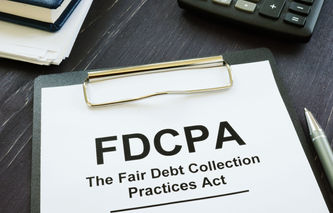 Consumers that pay their bills late, or don't pay them at all, may eventually receive a call from a debt collection agency. This is usually the final step in a lender's dunning process. When that happens, it's important for the consumer to know the rights they have under the Fair Debt Collections Practices Act.
Consumers that pay their bills late, or don't pay them at all, may eventually receive a call from a debt collection agency. This is usually the final step in a lender's dunning process. When that happens, it's important for the consumer to know the rights they have under the Fair Debt Collections Practices Act.
Identity Theft
As the pressure continues in the credit market, companies as well as consumers are fighting back against identity thieves. National policies are pushing companies to protect confidential customer information more proactively. Credit reporting agencies and law enforcement officials are taking steps to lower the likelihood you'll be a victim of identity theft.
- A number of identity theft regulations were signed into law as part of the Fair and Accurate Credit Transactions Act (FACT Act), which required financial institutions and creditors to develop, and implement, written identity theft programs by November 1, 2008.
- Details Last Updated: Monday, 15 March 2021
 Perhaps the single most important document that can be used to protect against identity theft is a credit report. These reports contain a wealth of information when it comes to financial transactions, as well as the process of accurately matching those transactions to individuals. In this article, we're going to discuss the various types of information appearing in credit reports. We'll also explain how to use that information to figure out if someone has been a victim of identity theft. Finally, we're going to explain how to go about placing a fraud alert on a credit report.
Perhaps the single most important document that can be used to protect against identity theft is a credit report. These reports contain a wealth of information when it comes to financial transactions, as well as the process of accurately matching those transactions to individuals. In this article, we're going to discuss the various types of information appearing in credit reports. We'll also explain how to use that information to figure out if someone has been a victim of identity theft. Finally, we're going to explain how to go about placing a fraud alert on a credit report.- Victims of fraud or identity theft need to report the theft to various authorities. By taking the proper corrective action, victims can reduce the risk of further theft, and start a process that will clean up the inaccurate information appearing on their credit report. Recent statistics indicate nearly ten million adults in the United States are victims of identity theft each year. In this article, we're going to discuss the measures individuals can take if they discover they're a victim. This includes reporting the theft to credit reporting agencies, law enforcement officers, as well as the Federal Trade Commission.
- One of the ways to combat identity theft is to freeze a credit report. It's effective in preventing a thief from opening an account or new line of credit. Unfortunately, these restrictions don't stop all forms of theft. In this article, we're going to explain how freezes can be used to help prevent identity theft. We're also going to explain how to go about limiting access to a credit report. Finally, we're going to talk about the types of identity theft a freeze doesn't prevent.
- Individuals worried about identity theft should consider enrolling with a credit monitoring service. These programs will monitor credit reports, and will notify participants when a change or inquiry is made to their report. These services can include locking or unlocking a file, automated notifications, as well as access to credit scores. sources have stated that 33% of Americans have experienced identity theft.
Buying or Leasing a Car
We've tried to lay out the many of the options you've got when it comes to buying a new car. In fact, leasing a car is increasingly popular and we've explained why. So whether your decision is to buy a new car, buy a used car, or even lease a car, we've covered all of the possible choices you have today.
- When you buy or lease a car, you're normally making a multi-year commitment to the vehicle. Translation: you want to make sure you're buying or leasing a car that provides you with the reliability and service you need. That means that sleek new two-seater just won't do for most families of five.
 If you're thinking about buying a car in the next 12 months, the information in this article can help optimize that process. With the average price of a new car hovering close to $30,000, it's important to make the right decision. There is a lot of money at stake, and it's a choice that can impact your life for several years.
If you're thinking about buying a car in the next 12 months, the information in this article can help optimize that process. With the average price of a new car hovering close to $30,000, it's important to make the right decision. There is a lot of money at stake, and it's a choice that can impact your life for several years.- When you buy or lease a car, you're normally making a multi-year commitment to the vehicle. Translation: you want to make sure you're buying or leasing a car that provides you with the reliability and service you need. That means that sleek new two-seater just won't do for most families of five.
- Twenty years ago, leasing a car made sense for individuals that were writing-off their monthly payments as a business expense. Today, many people prefer the luxury of driving a new car every two or three years. The shift from buying to leasing cars has led to a large and growing marketplace.
 According to statistics released by the Federal Reserve, the average car loan is nearly $30,000. Buying a car involves a considerable amount of money, and is oftentimes the second largest purchase decision made by households. The ability to understand and analyze the available financing options is critically important.
According to statistics released by the Federal Reserve, the average car loan is nearly $30,000. Buying a car involves a considerable amount of money, and is oftentimes the second largest purchase decision made by households. The ability to understand and analyze the available financing options is critically important.
Buying a New Car
If you're looking for reliability and deriving the most long-term value from your car, then buying a new car is perhaps your best option. Here we help you figure out how to research cars, and even how to negotiate with dealerships:
- You can use this calculator to help you compare the costs of buying a new car versus a used car. The calculator takes into consideration factors such as the depreciation in value of each car, maintenance costs, as well as how long you want to own the car. Using that information, it determines the monthly cost of ownership for buying a new versus a used car.
 Ironically, buying a used car is oftentimes more complicated than buying a new one. In addition to the research needed when purchasing a new car, it's important to understand a vehicle's reliability record too. Fortunately, the time spent doing a little research now will save a lot of headaches later on.
Ironically, buying a used car is oftentimes more complicated than buying a new one. In addition to the research needed when purchasing a new car, it's important to understand a vehicle's reliability record too. Fortunately, the time spent doing a little research now will save a lot of headaches later on.- Anyone thinking about buying a car over the Internet is going to be pleasantly surprised with the experience. Buying a car online is a fairly simple process. It also eliminates a lot of the unpleasant interactions often associated with a visit to the local car dealership.
- It's becoming increasingly popular for many Americans to donate a car; especially right after buying a new vehicle. Unless the older car is being given to a family member or friend, there are a limited number of options the owner has including trading the vehicle in, selling it, or donating it to a charity such as the Salvation Army.
New Car Features
Automobile manufacturers continue to improve new cars on the road today. From variable valve timing to advanced transmissions, we'll help explain some of the technologies that make cars easier to drive, and more fuel efficient than ever before.
- When gasoline prices first jumped in the summer of 2005, consumer interest in fuel efficient cars increased dramatically. Individuals that were used to paying around $20 to fill up their cars were suddenly paying over $50. That summer was a wake up call for everyone that thought paying $3.00 or more for a gallon of gasoline would never happen.
- Anyone thinking about buying a new car over the next couple of years may be introduced to an entirely new breed of vehicles: fuel cell cars. They're not exactly ready for sale today, but in the coming years everyone will be hearing from several car manufacturers that have these vehicles in the evaluation stage right now.
 While anything is possible, it looks like the long-term price of gasoline is going to stay below the $3.00 per gallon mark. Given this new price point, the economics of buying a hybrid vehicle are changing, which is good news for "green" consumers. In this article, we're going to discuss how gasoline prices at the pump are changing the economics of driving in America. We're going to evaluate the premiums paid for hybrid cars, and determine if it makes good business sense to buy these vehicles. We're also going to talk about a very important variable that's often overlooked when...
While anything is possible, it looks like the long-term price of gasoline is going to stay below the $3.00 per gallon mark. Given this new price point, the economics of buying a hybrid vehicle are changing, which is good news for "green" consumers. In this article, we're going to discuss how gasoline prices at the pump are changing the economics of driving in America. We're going to evaluate the premiums paid for hybrid cars, and determine if it makes good business sense to buy these vehicles. We're also going to talk about a very important variable that's often overlooked when...- This calculator allows you to compare the cost of buying a hybrid vehicle to that of a car with a standard combustion engine. The calculation considers the initial purchase price of each car, government incentives, financing terms, the miles per gallon (MPG) for each vehicle, the number of miles driven each year, as well as the cost of gasoline. Using this information, along with the anticipated depreciated value of each vehicle, the calculator computes the differential cost of buying a hybrid.
- In the never-ending drive to squeeze more miles per gallon of fuel, automobile manufacturers are once again turning to lean burn technologies. The government showed its support for this equipment when it passed the Energy Policy Act of 2005. Cars, trucks, and SUVs certified as advanced lean-burn vehicles qualify for tax credits as high as $1,800 under the provisions of that law.
Leasing a Car
Leasing a car is becoming increasingly popular today for consumers who like the idea of driving a new car every couple of years. Leases also allow you to avoid making a sizable capital (down payment) investment in a depreciating asset. If you're thinking about leasing your next car, then we can help you get started:
- Twenty years ago, leasing a car made sense for individuals that were writing-off their monthly payments as a business expense. Today, many people prefer the luxury of driving a new car every two or three years. The shift from buying to leasing cars has led to a large and growing marketplace.
- Additional Resources
- The term mileage charge is usually associated with automobile leases or car rentals. These are the per mile fees imposed when a vehicle is driven beyond the miles allowed in the lease or rental agreement.
- A closed end lease is one of the two main types of car leases available today; the other being an open end lease. With this type of lease, the lessor and lessee agree on the residual value of the automobile. A closed end lease, also known as a "walk away" lease, allows the lessee to walk away at the end of the contract; without the risk of making any additional commitment to purchase.
 Perhaps the most important term associated with a car lease is the money factor. It's the equivalent of the interest rate on a car loan, and provides the consumer with a measure of the financing cost associated with a lease. In this article, we're going to first run through the fundamental concepts of car leases. We'll explain how they're structured, how the dealership makes money, and outline several steps that everyone can use to figure out if the monthly lease payment being offered is a fair one. This is where the money factor comes into consideration. We'll even provide links...
Perhaps the most important term associated with a car lease is the money factor. It's the equivalent of the interest rate on a car loan, and provides the consumer with a measure of the financing cost associated with a lease. In this article, we're going to first run through the fundamental concepts of car leases. We'll explain how they're structured, how the dealership makes money, and outline several steps that everyone can use to figure out if the monthly lease payment being offered is a fair one. This is where the money factor comes into consideration. We'll even provide links... Consumers looking for a no-money-down car lease should evaluate the opportunities that a swap a lease marketplace provides. The term "swap" is a bit misleading, because trading leases isn't necessary. It's an arrangement whereby a buyer agrees to assume responsibility for the seller's existing lease.
Consumers looking for a no-money-down car lease should evaluate the opportunities that a swap a lease marketplace provides. The term "swap" is a bit misleading, because trading leases isn't necessary. It's an arrangement whereby a buyer agrees to assume responsibility for the seller's existing lease. One of the terms and conditions a car lease typically includes is an agreement to take possession of the vehicle for a predetermined period of time. But what if it's necessary to terminate the car lease early? What options are available, and what needs to be taken into consideration before making a decision?
One of the terms and conditions a car lease typically includes is an agreement to take possession of the vehicle for a predetermined period of time. But what if it's necessary to terminate the car lease early? What options are available, and what needs to be taken into consideration before making a decision?
Buying a Used Car
With the growing market for leased cars, we're starting to see many "gently used" cars hitting the market; some even carrying the label "certified used vehicle." If you can find a dependable used car, then buying one might be the most economical purchase decision you can make:
- Used cars may represent one of the best values on the market today. Of course that holds true only if it's dependable. Interestingly, that's one of the nice features about these cars; previous owners have already put them through a real world road test.
- Whenever buying a used or new car, it's always advisable to take a closer look at the vehicle's historical repair record. There is a saying in the investment world that past performance is not a guarantee of future performance; but when it comes to used cars, historical repair records need to be carefully considered.
 Ironically, buying a used car is oftentimes more complicated than buying a new one. In addition to the research needed when purchasing a new car, it's important to understand a vehicle's reliability record too. Fortunately, the time spent doing a little research now will save a lot of headaches later on.
Ironically, buying a used car is oftentimes more complicated than buying a new one. In addition to the research needed when purchasing a new car, it's important to understand a vehicle's reliability record too. Fortunately, the time spent doing a little research now will save a lot of headaches later on.
New and Used Car Loans
Not many people walk into a car dealership and pay cash for their new car. With new automobiles averaging close to $30,000, car loans are a "must-have" for most of us. If you're looking for a new car loan or might have a credit problem, we can help you work through the process of financing your next car purchase:
- According to the latest government statistics, the average price paid for a new car is around $30,000 in the United States, with a new car loan averaging near $28,000. Buying a car involves a considerable amount of money, so anytime a buyer is looking for a loan, shopping around can really pay off. The process of buying a car fundamentally has two parts: choosing a car, and deciding how to finance the vehicle. Ideally, the process starts with the financing decision, or time spent determining what is actually affordable. Intuitively, it seems most consumers start by deciding on the...
- Figuring out which new car to buy can be a very stressful experience. Financing decisions only add to that stress, especially if someone has bad credit. That's because having a poor credit score can lower the ability to get a competitive interest rate on a car loan.
- This is the final article in our used car buying series, and it's going to address the question of financing. At this point, a car has been identified that meets both the driver's functional requirements and budget. The car was inspected by a mechanic, and the warranty on the vehicle can be found in the Buyer's Guide.
Car Safety, Insurance, and Accessories
Figuring out what accessories you need or want in a new car is sometimes a difficult decision. Our car accessories articles tell you what features will also provide value when you finally sell the car. Since most states and finance companies mandate car insurance, we threw in some information on that topic too:
- It's easy to buy a car that looks and feels great to drive. Smart consumers will also want to know the safety features a car has to offer. While it's important to feel comfortable and in control, it's equally important to buy a car that will protect its driver and passengers too.
- Annually, the Insurance Institute for Highway Safety chooses car models to win its Top Safety Pick award. This award recognizes car designs that provide for the best protection in front, side, and rear collisions. The award is based on a series of safety tests the institute performs.
- Back in 2001, the federal government took a firm stand on car seat safety. Statistically, studies showed that 82% of the child safety seats deployed in cars were not installed and used correctly. That's why cars manufactured after September 2002 are required to have LATCH (Lower Anchors and Tethers for Children) installed; a system that makes attaching a child's safety seat easier.
- Details Last Updated: Wednesday, 17 February 2021
- One of the many options consumers need to think about when buying a new car are the accessories to purchase. At one time, air conditioning was viewed as a luxury feature to have in a car. Today, nearly all new cars come with air conditioning installed as standard equipment.
 Insuring an automobile is more than just a good way to protect an investment. It's also a good way to protect people too. In most states, owners are legally required to carry insurance to protect passengers, people that might be injured by the car, and damages it might cause to property. In this article, we're going to discuss why consumers need automobile insurance, as well as the categories of protection offered to individuals. We'll also talk about some of the factors companies will use to determine policy premiums.
Insuring an automobile is more than just a good way to protect an investment. It's also a good way to protect people too. In most states, owners are legally required to carry insurance to protect passengers, people that might be injured by the car, and damages it might cause to property. In this article, we're going to discuss why consumers need automobile insurance, as well as the categories of protection offered to individuals. We'll also talk about some of the factors companies will use to determine policy premiums.- Found in automobile insurance policies, comprehensive insurance is one of several categories of coverage. Comprehensive insurance pays for damage to the car caused by an unknown party or an act of God. Comprehensive insurance will cover repair costs up to the fair market value of the automobile.
College Life Basics: Budgeting & Loans
If you think buying a car is expensive, going to a private college is like buying a new car for four consecutive years! Here we help you through the process from start to finish. We've got lots of helpful information; whether it's choosing a college, applying for a student loan, or understanding the differences between government loans, grants and work-study.
- Choosing the right college is not easy to do. It would be unusual for a teenager to really know what kind of profession they want to pursue. Parents see sons, daughters, nieces, and nephews go through the process of picking a college. The decision takes a toll on these young adults; it's a combination of fear, frustration, and confusion.
- We've all read, or heard, about the runaway costs of a higher education. Both public and private colleges and universities are now charging students $25,000 to $80,000 annually to attend school. Costs of this magnitude mean that finding a student loan to help finance college costs is essential to most families and students.
 High interest rates and a flat wage growth are making things difficult for those repaying their student loans. The high cost of borrowing, rising living expenses, and job market uncertainty make the student loan payoff calculator a really valuable resource. Using this strategy means faster debt repayment while saving money on interest payments.
High interest rates and a flat wage growth are making things difficult for those repaying their student loans. The high cost of borrowing, rising living expenses, and job market uncertainty make the student loan payoff calculator a really valuable resource. Using this strategy means faster debt repayment while saving money on interest payments.- Student grants are an important source of college funding, and their best feature is they don't have to be repaid. We're not talking about grant programs to conduct research. In this article, we are focusing on programs that help college and university students pay for the cost of their education.
- Here's some sound advice for anyone looking for cheap student airfare: Be careful. This topic might seem like a departure from the college loan theme; but travel expenses can add considerably to the cost of a college education.
- The term federal student loan applies to three different types of financial aid available to help students pay for college. The government has created several ways to help students pay for school, and loans are only one of those ways.
- The phrase academic term refers to a portion of an academic calendar during which classes are in session. While the most common academic term is a semester, a school's academic calendar may include trimesters, quadmesters as well as quinmesters.
- The Federal Pell Grant Program provides students with financial aid that, unlike a student loan, does not have to be repaid. The Free Application for Federal Student Aid, or FAFSA, is used by students to apply for a Pell Grant.
Applying for College Loans
If you've never applied for a college loan before, the entire process can seem quite complex. Thanks to the Internet, nearly everything dealing with applications can be completed using online forms.
If you're wondering how long each step in the process will take, when to apply, or where to go for your application, we've explained it all:
 Going to college is a great career move, but it's also an expensive one. Applying for a student loan is a necessity for most families. This article is going to be one of the "all you need to know about applying for a student loan" summaries. It's going to explain how long it takes to apply, and what kind of information is needed when filling out an application.
Going to college is a great career move, but it's also an expensive one. Applying for a student loan is a necessity for most families. This article is going to be one of the "all you need to know about applying for a student loan" summaries. It's going to explain how long it takes to apply, and what kind of information is needed when filling out an application.- Student loans are a very important way to fund your college education. Our guide to college loans tries to help you get all the loans you're entitled to. We'll explain to you the process of applying for a federal student loan, and how to work with the financial aid office of the college or university your thinking about attending.
- Even if we start to save for college expenses the day a child is born, college costs present a challenge to many of us. With the cost of universities and colleges in the range of $25,000 to $80,000 per year, a college loan is a necessity. Fortunately, there are some attractive interest rates available through federally-funded programs.
- Student loans are a very important way to fund your college education. Our guide to college loans tries to help you get all the loans you're entitled to. We'll explain to you the process of applying for a federal student loan, and how to work with the financial aid office of the college or university your thinking about attending.
- The term federal student loan applies to three different types of financial aid available to help students pay for college. The government has created several ways to help students pay for school, and loans are only one of those ways.
- The Free Application for Federal Student Aid, or FAFSA, is a standardized financial aid document that ensures students seeking an education beyond high school are provided with the benefits they deserve under federally-funded programs.
 The Canadian government has set up the National Student Loan Center (Centre) to ensure its students have access to all the information they need to apply for, and repay, their student loans. The center is conveniently housed in an online website that includes all of the tools, applications, and resources that Canadian students need to manage their loans.
The Canadian government has set up the National Student Loan Center (Centre) to ensure its students have access to all the information they need to apply for, and repay, their student loans. The center is conveniently housed in an online website that includes all of the tools, applications, and resources that Canadian students need to manage their loans.- The federal government here in the United States provides students with an efficient way to fund their education through government-sponsored student loans. But that's just one way to pay for college. The government provides students with three different programs to help pay for school: loans, grants, and work study.
 A Stafford Loan was one of three types of loans made available to students by the federal government. There are several forms of financial aid available to students and not all are loans, but a Stafford loan was money borrowed by the student, and repayment is necessary; except under certain conditions.
A Stafford Loan was one of three types of loans made available to students by the federal government. There are several forms of financial aid available to students and not all are loans, but a Stafford loan was money borrowed by the student, and repayment is necessary; except under certain conditions.- The term student loan is used to describe borrowed money, which must be repaid with interest. Students can be studying for undergraduate or graduate degrees to be eligible for a loan. Parents of students may also borrow money to help pay for the educational expenses of dependent undergraduate children.
- The Student Aid Report, or SAR, is a document that summarizes the information supplied on the Free Application for Federal Student Aid. The report also contains an estimate of the Expected Family Contribution, or EFC.
Repaying a Student Loan
Unlike grants and work-study programs, student loans are just like personal loans. That means they eventually need to be repaid in full. Fortunately, there are many different repayment options you'll have after graduation.
In fact, you might even be eligible for deferment or forgiveness. There are a number of important programs, and you certainly don't want to miss out on an opportunity to have your student loan forgiven:
 One of the ways college graduates can ease their financial burden each month is by selecting the appropriate repayment option. This is especially true if the former student is struggling to find a job after graduation. In this article, we're going to be discussing the options available to former students responsible for repaying their loans. As part of that discussion, we'll first talk about repayment timelines and the counseling available before leaving school. Then we'll describe the variety of repayment options available for each loan type.
One of the ways college graduates can ease their financial burden each month is by selecting the appropriate repayment option. This is especially true if the former student is struggling to find a job after graduation. In this article, we're going to be discussing the options available to former students responsible for repaying their loans. As part of that discussion, we'll first talk about repayment timelines and the counseling available before leaving school. Then we'll describe the variety of repayment options available for each loan type. There are several circumstances that allow current, and former, students to qualify for loan deferment. These options will vary depending on the types of loans outstanding as well as the borrower's financial and workplace status. A deferment means no payments need to be made on a student loan during the approved deferment period; the payments can be delayed until a later date. In the case of Subsidized Stafford Loans, interest charges will not accrue during this period which means the size of the loan will not grow due to financing charges.
There are several circumstances that allow current, and former, students to qualify for loan deferment. These options will vary depending on the types of loans outstanding as well as the borrower's financial and workplace status. A deferment means no payments need to be made on a student loan during the approved deferment period; the payments can be delayed until a later date. In the case of Subsidized Stafford Loans, interest charges will not accrue during this period which means the size of the loan will not grow due to financing charges.
Taxes and Student Loans
If you're repaying your student loans, you might be pleasantly surprised to find out that you can usually take a tax deduction for the interest charges. If you're trying to get a feel for the latest interest rates on loans, take a look at the articles below:
 Each year, new student loan interest rates are published. Overall, rates have been relatively low; nothing like those that existed back in the early 1980s. That's good news for students because even though they can do very little to control the rising cost of tuition at their colleges, at least the interest rate on their student loans are reasonable.
Each year, new student loan interest rates are published. Overall, rates have been relatively low; nothing like those that existed back in the early 1980s. That's good news for students because even though they can do very little to control the rising cost of tuition at their colleges, at least the interest rate on their student loans are reasonable.- The Lifetime Learning Credit helps taxpayers to offset the cost of higher education. The credit does so by reducing the income taxes owed by individuals paying for certain college-related expenses. The Lifetime Learning Credit allows for a tax credit of $2,000 for those qualifying expenses of an eligible student.
 The Hope Scholarship Credit can help offset the cost of higher education by directly reducing the amount of income taxes paid. The Hope Credit has been around since January 1998, and allows individuals to claim a tax credit of up to $2,500 in qualified education expenses for each student enrolled in school.
The Hope Scholarship Credit can help offset the cost of higher education by directly reducing the amount of income taxes paid. The Hope Credit has been around since January 1998, and allows individuals to claim a tax credit of up to $2,500 in qualified education expenses for each student enrolled in school.
Consolidating College Loans
If you're already repaying your loans, then you probably understand that keeping track of all those student loans, and their specific repayment schedules, is not so easy. There are several private and semi-governmental institutions that can help streamline your monthly bills by walking you through the process of consolidating your student loan:
- Federal grants have not kept pace with the rising cost of college. Private student loans, along with federal programs such as Stafford and Perkins Loans, have helped to fill that void; playing an important role in funding a student's education.
 Students looking for help with rising college costs are often told by their school's financial aid department to apply for an ACS Student Loan. In this article, we'll take a closer look at the services this company has to offer students, universities, and financial institutions. Affiliated Computer Services, Inc., or ACS, specializes in business process outsourcing (BPO) and technology outsourcing solutions. According to a press release:
Students looking for help with rising college costs are often told by their school's financial aid department to apply for an ACS Student Loan. In this article, we'll take a closer look at the services this company has to offer students, universities, and financial institutions. Affiliated Computer Services, Inc., or ACS, specializes in business process outsourcing (BPO) and technology outsourcing solutions. According to a press release: Sallie Mae was created in 1972 as a government-sponsored enterprise to enhance public access to higher education by serving as a secondary market, and warehousing entity, for student loans. The company offers existing and former student borrowers a wide variety of services, including securing private student loans and debt management.
Sallie Mae was created in 1972 as a government-sponsored enterprise to enhance public access to higher education by serving as a secondary market, and warehousing entity, for student loans. The company offers existing and former student borrowers a wide variety of services, including securing private student loans and debt management.
Saving for College
Several years ago, the federal government introduced what are called 529 college savings plans. These plans allow individuals to save for college and, at the same time, often providing them with a tax incentive to do so. Here you'll find a wide array of information dealing with this important investment strategy.
- Also referred to as prepaid tuition and college savings plans, 529 plans are named after the section of the federal tax code that created these investments. The 529 is a tax-advantaged account that allows investors to save money for the higher education costs of the plan's beneficiary.
 Section 529 of the Internal Revenue Code authorized what are now referred to as 529 college savings plans or qualified tuition plans, which were passed as part of the 2001 Economic Growth and Tax Relief Reconciliation Act. These plans are sponsored by individual states and educational institutions to encourage the growth of college savings accounts.
Section 529 of the Internal Revenue Code authorized what are now referred to as 529 college savings plans or qualified tuition plans, which were passed as part of the 2001 Economic Growth and Tax Relief Reconciliation Act. These plans are sponsored by individual states and educational institutions to encourage the growth of college savings accounts.- Children grow up fast, and the cost of a college education keeps growing too. Fortunately, 529 plans provide a great way to start saving for the expenses associated with a college education.
- Also known as a qualified tuition program or QTP, a 529 plan is one of the most efficient ways to save for higher education offered today. The flexibility and unique benefits of 529 plans allow accountholders to cope with the rising costs of a college education, while remaining very much in control of their money.
- Not only are Section 529 plans an excellent way to fund a child's future college expenses, but they're also an important estate planning tool. In fact, for wealthier families, a 529 plan offers excellent opportunities to transfer wealth as part of an overall estate strategy.
 If you've ever felt helpless against the rising cost of college tuition, you're not alone. Fortunately, there is an answer to this problem in the form of 529 plans, which offer individuals saving for college a prepaid tuition option. That's great news for parent-investors looking to lock in the cost of college tuition, since it provides their children with a large choice of private colleges and universities.
If you've ever felt helpless against the rising cost of college tuition, you're not alone. Fortunately, there is an answer to this problem in the form of 529 plans, which offer individuals saving for college a prepaid tuition option. That's great news for parent-investors looking to lock in the cost of college tuition, since it provides their children with a large choice of private colleges and universities. The federal government provides a number of tax breaks that can help ease the financial burden of families saving for college. One of the ways to take advantage of these breaks is by opening a Coverdell Education Savings Account, or Coverdell ESA. At one time these were referred to as Education IRAs, but the Coverdell has a new name and some new rules too.
The federal government provides a number of tax breaks that can help ease the financial burden of families saving for college. One of the ways to take advantage of these breaks is by opening a Coverdell Education Savings Account, or Coverdell ESA. At one time these were referred to as Education IRAs, but the Coverdell has a new name and some new rules too.- Saving for college is an enormous financial undertaking, and rivals the burden of saving for retirement. These two financial challenges have something in common too: It's possible to use a Roth IRA to save for college. In fact, it's possible to use a Traditional IRA to help pay for college expenses too. For some taxpayers, using an individual retirement account as a college fund makes a lot of sense.
- An Education IRA is a custodial account created for the purpose of paying for the qualified higher education expenses of a designated beneficiary. In 2001, all existing Education IRA accounts were renamed to Coverdell Education Savings Accounts (ESA), or Coverdell ESA.
College Loan Legislation
You might be surprised to hear that there has been a loophole in some college loan legislation dating back to the 1980's, which allows private lenders to make some extra cash at the taxpayer's expense. Find out what some of our legislators are trying to do to close those loopholes, and get more money into the hands of students:
- There's some bipartisan legislation on the horizon that aims to send more Americans to college, and it's called the Student Aid Reward Act. Originally sponsored by Senators Kennedy (D-MA) and Smith (R-OR), and Representatives Petri (R-WI) and Miller (D-CA), the act intends to increase college scholarships with no additional cost to taxpayers.
Buying a Home: Basics
Our guide to buying a home aims to be a great source of information for both the first-time home buyer and those thinking about a second home. We'll take you through the entire process: from figuring out how large a mortgage you can afford, right through your closing. We'll explain it all to you in simple terms, which should remove the mystery around buying a home.
- According to data published by the Census Bureau, nearly five million homes are sold each year in the United States. For many Americans, buying a home is the single largest investment they will make in their life. It's a decision that affects personal finances as well as lifestyle.
- The renewed faith in the American economy and housing market that came to a screeching halt in 2019 picked up again 2020, resulting in an increase in the selling price of homes over the past year.
- Details Last Updated: Tuesday, 06 October 2020
.png) Before buying a home, it's always a good idea to have it inspected by a professional. In fact, if planning to borrow money to help pay for this home, it is very likely the mortgage company, or lender, will require a home inspection. Inspectors can often uncover existing problems with a home that are not immediately apparent to a potential buyer. In addition, most offers made by buyers on a home are usually subject to change based on the information contained in the inspector's report.
Before buying a home, it's always a good idea to have it inspected by a professional. In fact, if planning to borrow money to help pay for this home, it is very likely the mortgage company, or lender, will require a home inspection. Inspectors can often uncover existing problems with a home that are not immediately apparent to a potential buyer. In addition, most offers made by buyers on a home are usually subject to change based on the information contained in the inspector's report.- Picture this... a buyer is working with their real estate agent, and they find the perfect home, at a great price, in the ideal location. They're determined to close on the deal, but there is one obstacle standing in their way: the home inspection. After all, a good inspector is liable to figure out the perfect house might not be so perfect.
- Buying a new home is not an everyday event; it's one of those financial milestones that many of us look forward too. Unfortunately, we're not prepared for all of the jargon we encounter when closing on a home; and we usually only get one bit of insight from friends and relatives: closings are expensive.
- Individuals new to the home buying marketplace may be introduced for the first time to the concept of escrow. In fact, when buying a new home, the money placed in an escrow account is oftentimes the largest expense associated with a home's closing cost.
- The final walk through inspection is conducted on the day a buyer closes on a home. Knowing what's important, and what to look out for, can save a good deal of grief, and money, later on.
- Also referred to as NNN leases, the triple net lease is more common in commercial real estate than the residential market. It's an arrangement that places a good deal of financial burden on the tenant, so it's important for renters to understand the commitment they're making with this type of contract.
- The term mortgage is used to describe a pledge of property to a lender to ensure the borrower repays the lender the entire loan. The terms on a mortgage will include the length of the loan, interest rate charged and, optionally, the upfront payment of points.
- The term mortgage points is used to describe the upfront fee lenders place on a mortgage to reduce the interest rate charged the borrower. The payment of points results in the prepayment of interest charges, which lowers the overall risk of the loan.
- A fixed rate mortgage is a home loan whereby the interest rate charged the borrower remains fixed over the term of the loan. Since the interest rate does not vary with a fixed rate mortgage, the monthly payments on the loan remain constant throughout the term of the loan.
- A mortgage that terminates before the principal of the loan is completely paid off is called a balloon mortgage. The balance that must be paid at the end of this term is referred to as the balloon portion of this loan. This type of mortgage can carry a fixed or floating interest rate.
- Also known as a variable rate mortgage, an adjustable rate mortgage (ARM) is a home loan whereby the interest rate charged can change over the term of the loan. Typically, the rate adjusts, or tracks, with a well-defined index such as the Cost of Funds Index (COFI) or the London Interbank Offer Rate (LIBOR).
- A home equity line of credit, or HELOC, is an agreement between a homeowner and a lender whereby the lender agrees to provide the homeowner with access to funds, using the home as collateral for the loan.
Buying a Home for the First Time
Our first-time home buyer series walks you through the entire process of buying a home. That means we start with a "how to" find the best town, and run right through negotiating with the homeowner. You're about to spend a lot of money, you should be doing all you can to make sure you're going to do it right, or at least minimizing your mistakes:
- Buying a home is an important decision and it's a difficult one too; especially for first-time home buyers. A new home is a big investment, and the choice is oftentimes one that lasts for years.
- In the first two articles in this series, we explained how to calculate an affordable mortgage, and the factors to consider when choosing the home's location. In this third installment, we are going to discuss how to work with real estate agents.
- In the previous article in this series, we walked through a process that enables first time home buyers to estimate how much they can afford to pay for a new home. The next step in this process is to figure out where to live.
- In the first three articles in this series, we explained how to calculate an affordable mortgage, choose a home's location, and how to work effectively with a real estate agent. In this final article, we're going to talk about pre-qualifying for a mortgage, and what to look for when trying to evaluate a home's potential value.
- Information concerning low cost first time home buyer loans is available through state and federal agencies in cooperation with private lenders. To speed up the process, these government agencies have preapproved lenders to work with home buyers.
- There are many things we do for the first time... take a step, fall in love. But with today's home prices, it would be nice to make an informed purchase decision that we can look back on with no regrets. That's why first time home buyer programs are such an important source of information for anyone thinking about taking the plunge, and buying a home.
- If the forces of supply and demand are heating up the local real estate market, buyers can't expect sellers to offer much in the way of incentives. But if the market has been cooling off, or homes are not selling quickly, sellers and builders alike will offer what are seemingly generous incentives.
Financing Your Home
If you have bad credit, or you've been thinking about refinancing your home, we lay out the options you have in this series of articles. Whether it's a home equity loan, or you're considering remodeling your home, here's some information that can help you understand the financing choices you have:
- Individuals thinking about buying a home, or even a new car, are oftentimes interested in seeing an amortization schedule for the loan. These schedules allow users to calculate, or visualize, what happens to the loan as time progresses.
- Anyone that's ever purchased a "used" home is familiar with the costs that are oftentimes needed to bring it up to modern standards. Financing these home improvements is an especially important topic to anyone buying a home that's a "fixer upper."
- A home equity loan is an agreement between a lender and homeowner, whereby the loan is secured using the home as collateral. Home equity loans are sometimes referred to as second mortgages, which would be subordinate to any existing mortgage on the home.
 There are a number of reasons why someone might wind up with bad credit; people make mistakes. They stretch too far when it comes to financial commitments, or experience an unfortunate run of bad luck such as losing a job. Regardless of the reason, many of these same individuals often wonder to themselves: Is buying a home with bad credit possible?
There are a number of reasons why someone might wind up with bad credit; people make mistakes. They stretch too far when it comes to financial commitments, or experience an unfortunate run of bad luck such as losing a job. Regardless of the reason, many of these same individuals often wonder to themselves: Is buying a home with bad credit possible? Families thinking about buying a new home may have considered working with a mortgage broker. Many borrowers believe mortgage brokers can lend a helping hand when it comes to finding the best deal on a loan. But as we'll see, a mortgage broker may not always have the borrower's best interests in mind.
Families thinking about buying a new home may have considered working with a mortgage broker. Many borrowers believe mortgage brokers can lend a helping hand when it comes to finding the best deal on a loan. But as we'll see, a mortgage broker may not always have the borrower's best interests in mind. There is no doubt that filing for bankruptcy can have a devastating impact on the ability to borrow money. This is especially true in the months and, sometimes years, immediately following a bankruptcy filing and settlement. But buying a home after bankruptcy in as few as 18 to 24 months is possible if the right steps are taken to rebuild creditworthiness. Anyone that's presently in a bankruptcy proceeding is going to have to wait until their case has been decided before trying to buy a home. No one's going to extend credit to someone when they're in this situation. Besides,...
There is no doubt that filing for bankruptcy can have a devastating impact on the ability to borrow money. This is especially true in the months and, sometimes years, immediately following a bankruptcy filing and settlement. But buying a home after bankruptcy in as few as 18 to 24 months is possible if the right steps are taken to rebuild creditworthiness. Anyone that's presently in a bankruptcy proceeding is going to have to wait until their case has been decided before trying to buy a home. No one's going to extend credit to someone when they're in this situation. Besides,...- Also known as a variable rate mortgage, an adjustable rate mortgage (ARM) is a home loan whereby the interest rate charged can change over the term of the loan. Typically, the rate adjusts, or tracks, with a well-defined index such as the Cost of Funds Index (COFI) or the London Interbank Offer Rate (LIBOR).
- They're called pay option loans, pick a payment, and the somewhat less descriptive term Option ARMs. Regardless of the name, these innovative mortgages can save borrowers 30% or more on their monthly payments; but at what cost?
 Financial hardships, such as the sudden loss of a job, can often force homeowners to delay payments on their monthly mortgage. Unfortunately, when a homeowner starts to fall behind on their payments, they run the risk their lender may try to foreclose on their home. In this article, we're going to explain how homeowners can attempt to avoid foreclosure. As part of that discussion, we'll first talk about the process timeline. Then we'll provide some tips on how to avoid foreclosure, and the available alternatives. Finally, we'll talk about some of the common scams that prey upon the fears of...
Financial hardships, such as the sudden loss of a job, can often force homeowners to delay payments on their monthly mortgage. Unfortunately, when a homeowner starts to fall behind on their payments, they run the risk their lender may try to foreclose on their home. In this article, we're going to explain how homeowners can attempt to avoid foreclosure. As part of that discussion, we'll first talk about the process timeline. Then we'll provide some tips on how to avoid foreclosure, and the available alternatives. Finally, we'll talk about some of the common scams that prey upon the fears of...- Individuals interested in putting their home to work can choose from one of several equity release strategies, which allows homeowners to use the money invested in their home to provide a steady source of income. In this article, we're going to explain how homeowners can use an equity release strategy to create a future income stream. As part of that explanation, we're going to review several types of programs offered today. We'll also talk about the pros and cons of using this approach.
- Also referred to as settlement costs, the fees and other monies due at the time of a home's purchase are known as closing costs. These costs would not include the purchase price of the home, but those expenses associated with the legal transfer of the property and securing a loan.
Prefabricated / Manufactured Homes
The prefabricated housing market is a billion-dollar industry. If you're wondering how this market grew so big, then you probably haven't seen the latest lineup of manufactured homes. There're big, safe, and made better than ever. Some are even competing in the luxury home market:
- These homes go by many names: manufactured homes, prefabricated homes as well as mobile homes. Regardless of what they're called, these are state-of-the-art dwellings. The energy efficiency, structural soundness, and overall appearance of these houses get better every year.
- The prefabricated home market is large. To put things in perspective, new home sales reached just over $9 billion in 2019. With that many manufactured homes being sold each year, it's quickly becoming an important and significant market for both new and used homes.
- Details Last Updated: Tuesday, 06 October 2020
- At one time, the only type of prefabricated home that could be purchased was a house trailer. As the industry grew, so did the size of the homes. They were called mobile homes starting in the 1950's, when buying one was extremely popular, and competition was fierce. Today, the mobile home has evolved quite a bit from its humble beginnings, and the offerings are just as surprising.
Selling Your Home
Up to this point, most of our information is for those thinking about buying a home. But many of the same people buying homes are also selling a home. Here's an introduction to the process of selling your home, including the concept of house flipping, and a specialty article dealing with relocating a pet:
- When the number of unsold homes increases, that's a sure sign of a slow real estate market. Buyers might have a wide selection from which to choose, but what if they're trying to sell your home in a slow market? There's a lot of money at stake when selling a home, so it's important to understand just how much an unsold home can cost.
- No matter how slow the housing market might seem, it's always possible to sell a home. If anyone ever complains they can't sell their home, they're only telling half the story.
- The renewed faith in the American economy and housing market that came to a screeching halt in 2019 picked up again 2020, resulting in an increase in the selling price of homes over the past year.
- There are a number of ways to make money in real estate. Today's marketplace has literally turned the rules upside down with a concept termed flipping houses.
- Details Last Updated: Tuesday, 23 February 2021
- There's no doubt that everyone's seen one of these signs in front of a house or pointing down a street. Selling a home is a big step, and it involves a lot of money. In this article, we've a couple of tips that might come in handy for anyone thinking about putting a "For Sale" sign on their front lawn.
- Buying a home and relocating a family can be an unsettling and bittersweet experience. A lot of planning goes into the move to make sure family members, cars, and furniture get to their new location in one piece. Moving the family pet can take just as much thought and planning as the other family members, sometimes more.
Safety and Security in a New Home
While owning a new home can be an exciting experience, you're also going to realize that you have an obligation to your loved ones to make sure your home is safe and secure. This series of articles is dedicated to making sure you've done all you can do to make your new home a safe home.
- According to the National Fire Protection Association (NFPA), 97% of the homes in North America have at least one smoke alarm. Ironically, the NFPA statistics also state there are more homes with smoke alarms that are not working, than homes without alarms.
- Buying a new home is always an exciting event. But for anyone with young children, there can be obvious, or even hidden, safety hazards in any new home. Buying a home is a big investment, and the safety of family members is important too. It's fairly easy to spot safety hazards in a condominium, or apartment. But a single family home may be bigger and more "complex." In this article, we're going to talk about how to inspect a new home for potential safety hazards.
- Details Last Updated: Tuesday, 23 February 2021
Buying Insurance
Our guide to buying insurance aims to provide you with helpful insurance information. We'll talk about the pros and cons of term life insurance versus cash value policies such as universal life. We'll help you find low cost health insurance, and tell you about the ins and outs of the Medicare program.
If you're a homeowner or renter, we'll explain to you what your homeowner's insurance policy covers, and what it excludes. We'll also help you understand what is covered under the different categories of your car insurance policy, so you can make informed decisions that keep your premiums to a minimum.
- Our guide to buying insurance aims at providing you with helpful insurance information. We'll talk about the pros and cons of term life insurance versus cash value policies such as universal life. We'll help you find low cost health insurance, and tell you about the ins and outs of the Medicare program.
- Our guide to buying insurance aims at providing you with helpful insurance information. We'll talk about the pros and cons of term life insurance versus cash value policies such as universal life. We'll help you find low cost health insurance, and tell you about the ins and outs of the Medicare program.
- The term insurance cutoff refers to a provision in a reinsurance contract that specifies the date after which the reinsurer is not liable for losses when the insured terminates the agreement. The insurance cutoff date allows the insured to understand when the financial responsibilities of the reinsurer end.
- The term title insurance is used to describe a policy that can protect both a lender and property owner's rights to the legal title to real estate. Title insurance protects the insured against defects, liens and encumbrances associated with the property.
- The phrase GAP insurance is used to describe an insurance policy on an automobile that would ensure the entire balance on a loan could be repaid if the policyholder were involved in an accident and the cost to repair the vehicle exceeded the car's fair market value and outstanding balance on the loan.
- The term liability insurance is used to describe the portion of an insurance policy that protects the policyholder from lawsuits and similar monetary claims. Liability insurance typically protects against claims of negligence, malpractice, and other actions that result in injury or loss of property.
- Found in automobile insurance policies, comprehensive insurance is one of several categories of coverage. Comprehensive insurance pays for damage to the car caused by an unknown party or an act of God. Comprehensive insurance will cover repair costs up to the fair market value of the automobile.
- Also referred to as trip cancellation insurance, travel insurance compensates policyholders for nonrefundable expenses. For example, if the trip needs to be canceled for some unexpected reason, and the expenses such as airline tickets are nonrefundable, the insurance company will compensate the traveler for their monetary losses.
Health Insurance
Affordable health insurance is quickly becoming a mandate for most politicians here in America. Fortunately, there are low-cost health insurance programs offered through every state in the nation. We can tell you where to find this kind of health insurance in your state.
If you're a student in need of health insurance, you'll also be glad to know that many colleges and universities now offer affordable health insurance directly to their students:
- Personal health insurance plans can often be expanded to provide coverage for the entire family. If a household is growing, and there's a need to purchase additional health insurance, there are several important factors to consider before buying a policy or adding family members to an existing policy.
- Some people would argue there is a national healthcare crisis here in the United States, and low cost health insurance should be available to all citizens. While that last statement is certainly debatable, we'll address the issue of low cost health insurance in the article below. We're going to do that by first highlighting some recent health care statistics, including health insurance coverage. For those individuals that are looking for some low cost options, we'll explain how to figure out if a family qualifies for low cost, or no cost, health insurance. We'll also explain where to find information...
- Short-term healthcare insurance may be of interest to individuals that are between jobs, or waiting for a new healthcare policy to come into effect. Because it's sold as short-term insurance, the benefits and costs will be different than "standard" insurance policies. Therefore, the expectations of the policyholder should be different too.
- According to government statistics published in September 2019, nearly 12.8 million Americans buy individual health insurance policies because they cannot get group coverage where they work, or do not qualify for federal programs such as Medicaid or Medicare.
- If anyone ever says it's easier to run your own company, they're forgetting about the benefits an employer provides for their employees, including health insurance. Think it's easy for the self-employed to find inexpensive health insurance? Think again.
- In an attempt to save students from unexpected medical bills, colleges and universities are oftentimes requiring student to carry health insurance. This coverage also helps university medical hospitals to avoid losing money when students can't pay their bills. Recent surveys indicate that between 10 and 30% of students do not have any healthcare insurance.
- Today's dental plans are beginning to look more like health insurance plans of the late 1980's and early 1990's. Companies continue to search for the most efficient ways of supplying medical and dental insurance to employees, which means more dental maintenance organizations (DMO), and paying a greater share of the insurance premiums. In this article, we're going to discuss the basics of dental insurance, how these plans have changed recently, and what to expect from a good dental plan. But first, let's start with a quick discussion of the value of dental health care insurance.
Life Insurance Basics
To date, we've provided a wide range of information on the various types of life insurance policies. The offerings in the marketplace today currently include:
- A topic that's not an easy one to talk about is life insurance. Adding to this stress are aggressive agents, which can make this subject difficult to discuss in an objective manner. As consumers, the most important fact to keep in mind is this: a life insurance policy is an important part of every family's financial contingency plan. In this article we will talk about different life insurance policies, however, if you would like to go deeper, you can read one of our articles on life insurance statistics.
- Perhaps the most affordable way to provide for the financial security of loved ones is by purchasing term life insurance. It's a policy that's oftentimes described by insurance carriers as protection for those that cannot afford permanent insurance. That's because, by nature, term life insurance is usually guaranteed for intervals such as 10, 20 or 30 years.
- Details Last Updated: Monday, 01 March 2021
- A topic that's not an easy one to talk about is life insurance. Adding to this stress are aggressive agents, which can make this subject difficult to discuss in an objective manner. As consumers, the most important fact to keep in mind is this: a life insurance policy is an important part of every family's financial contingency plan.
- The term group life insurance is used to describe policies offered by business owners to employees. This allows both parties to leverage the buying power of a larger group or population. Providing group life insurance is an economical way for employers to offer this benefit to many employees.
Medicare Insurance
If you're over the age of 65, or have a qualifying illness, then we have a wealth of information on Medicare, Medicaid, and supplemental insurance policies. In this first series, we talk about the basics, such as eligibility rules. We also talk about the three most common parts of Medicare, including the newly introduced Medicare Part D (prescription drugs):
- The term disability insurance is used to describe an insurance policy that provides coverage in the event the policyholder becomes disabled, or is no longer able to perform work necessary to earn income. Disability insurance is a source of income that allows the policyholder to both provide for their family and maintain home ownership.
- Disability insurance is something that many people don't worry about when they are young, single, and healthy. But as the years pass, and financial responsibilities change, people naturally begin to think about the effects a sudden disability might have on those that depend on their income. That's where Social Security can help. In fact, the Social Security Administration claims that nearly 30% of working Americans become disabled before reaching their normal retirement age. In this article, we are going to explain some of the disability benefits under the Social Security program. We also have a separate publication that talks about...
- In January of 2008, the Treasury Department first announced plans to offer prepaid debit cards for recipients of Social Security. Coamerica Bank was chosen as the debit card issuer, and the Direct Express card provides users with safer and more convenient access to their Social Security benefits when compared to paper checks. In this article, we're going to explain the benefits of choosing the Direct Express debit card versus paper checks. We'll also quickly cover the fees that can be charged when using the card, as well as information that explains where applicants can go to sign up for the...
- Medicare is a federally sponsored health insurance program for people aged 65 and over, those with certain disabilities, and individuals with permanent kidney failure. In this article, we are going to focus on Medicare Part A: hospital insurance. We'll talk about the enrollment process; provide the most recent premium information, as well as deductibles and coinsurance payments.
- Medicare is a federally-sponsored program designed to provide individuals age 65 and older, and those with qualifying disabilities, with health care insurance. The entire program is split into several parts. Medicare Part B is medical insurance that helps participants pay for the costs of doctor bills and outpatient medical care. Part B also covers some of the medical services that Medicare Part A (hospital insurance) doesn't cover.
- Medicare is an important health insurance program run by the federal government that provides for both hospital care (Medicare Part A), medical care (Medicare Part B), and prescription insurance (Medicare Part D). In this article, we are going to discuss eligibility rules, and some of the more common terminology found within this program.
- On December 8, 2003, Congress passed a comprehensive Medicare prescription drug program, known as Medicare Part D. This program was aimed at providing Medicare recipients with prescription drug insurance.
- Medicaid is a state and federally funded health care insurance program for low-income individuals and families, as well as those that can demonstrate need. To be eligible for Medicaid benefits, individuals need to fall into one of over 25 different eligibility categories.
- Medical science has worked wonders over the last several decades. Americans are living longer and healthier lives. Still, many people fear that one day they may wind up in a nursing home, which can then be a financial burden. This is where Medicaid planning becomes important.
- Planning for your long-term care, or that of a loved one, is an important decision that many of us will face one day. As the quality of health care here in America improves, lifespans extend, and the use of nursing homes becomes more commonplace. That's why Medicaid planning strategies are getting so much attention lately.
- We are going to finish our series on Medicaid by providing a comprehensive list that outlines where to find a Medicaid application. The listing includes the organization's name, street address, telephone numbers, as well as website addresses.
- Federal law now makes it easier for everyone to buy and own long term care insurance. That's because it's easier for states to start programs that help reduce the worry, and stress, of paying for long term care.
Homeowners Insurance Policies
If you own or rent a home, you need to make sure it's adequately covered by your homeowner's insurance policy. If you rent a home, the owner normally insures the structure itself, but if you have clothing, wall art, or other valuables contained in the home, you need to take a closer look at renters insurance.
Finally, you'd be surprised at how many homes sit near, or in, flood plains. If you read through your existing homeowner's policy, it is very likely that flood insurance is specifically excluded from your coverage. We'll tell you where you can go to get this kind of protection for your home:
- Details Last Updated: Monday, 01 March 2021
- Whenever buying insurance, it's always a good idea to shop around. When it comes to home insurance quotes, there are a few simple guidelines that can help families to compare policies. Comparison-shopping can save hundreds of dollars on annual premiums, and perhaps even thousands of dollars when filing an insurance claim.
- Details Last Updated: Monday, 01 March 2021
- The term liability insurance is used to describe the portion of an insurance policy that protects the policyholder from lawsuits and similar monetary claims. Liability insurance typically protects against claims of negligence, malpractice, and other actions that result in injury or loss of property.
- To many families, a pet can bring love, companionship, and security to a home. With this relationship comes a responsibility on behalf of the owner to provide for their pet's proper veterinary care; whether it's a routine checkup or an emergency. Purchasing a pet insurance policy can oftentimes help ease that financial burden.
- Even if a community has never experienced widespread flooding before, purchasing flood insurance is something every homeowner should consider. Many owners mistakenly believe their homeowners insurance policy provides flood insurance. Renters often make the same mistake, thinking that they don't need coverage, but this isn't always true.
- While many of us don't like the idea of paying our insurance premiums each year, we are always glad we did when we need to file a claim. But how many of us even think about buying insurance against disasters? We might even be lulled into complacency because we're thinking that our existing homeowners insurance policy protects us against natural disasters. But as we'll soon explain, that's not always the case.
- Anyone that leases or rents an apartment, condominium, duplex, or house, should consider purchasing renter's insurance. The landlord's homeowners policy should cover damages to the building, but this coverage does not protect the belongings inside the structure or protect the renter from liability claims.
Retirement
It's never too early to start planning for retirement, and our guide to retirement is a good way to get started. We'll talk about the importance of individual retirement accounts, such as the traditional and Roth IRA, and we'll explain all of the eligibility and contribution rules too. This information will allow you to better understand the best choice for your individual situation.
We take the same approach with 403b and 401k plans that we do with IRAs. If you're lucky enough to have an employer that offers a 401k, then we'll give you some tips that will help make sure you're taking full advantage of this great retirement benefit.
- The sheer number of offerings can be intimidating to anyone thinking about investing in a retirement plan for the first time. It's easy to get confused, especially when it comes to tax-advantaged plans versus employer plans.
- Anyone working for more than ten years has probably daydreamed about retiring early. But everything is relative, and 35-year-olds are going to have a different definition than a 45-year-old. And what exactly is retirement anyway? Does that mean switching jobs, or completely checking out of the working world?
- Anyone that started their retirement planning early in their career should be in very good shape by the time they reach their 40s. Individuals planning for the first time may be faced with serious catching-up to do. That being said, starting a plan in your 40s is perhaps the single most important step someone can take to prepare themselves for the future.
- If there is ever a critical time for retirement planning, it's when you hit your 50s. You still have ten to fifteen years left in the workplace, and you're entering your peak earning years.
- If you agree with the mindset "it's never too late," then you'll appreciate what retirement planning in your 60s is all about. When it comes to something as important as retirement planning, don't ever give up and concede it's too late.
- To the young, it might seem crazy to create an article that talks about retirement planning in your 20s. Admittedly, to most 20-somethings, retirement is so far away that it occupies very little of their thoughts. But the reality is a time will come when these "youngsters" will retire too.
- If we had to summarize what retirement planning in your 30s is all about, it would probably go something like this: When you're in your 30s, you are in a unique position from a retirement planning standpoint. For most of us, these are the "make or break" years. Here's why.
- The Oxford Club is a premier financial research provider and exclusive investor network that serves to educate and empower its members. Founded in Baltimore, Maryland, the organisation has gained notoriety for promoting Alexander Green's "3 Dollar Stock" retirement strategy. This particular strategy has been promoted by the team at The Oxford Club since 2018 and is still highly regarded. In this guide, we will discuss what the strategy entails to help you decide whether it's something you should consider for your retirement plan.
- It's never too early to start planning for retirement, and our guide to retirement is a good way to get started. We'll talk about the importance of individual retirement accounts, such as the traditional and Roth IRA, and we'll explain all of the eligibility and contribution rules too. This information will allow you to better understand the best choice for your individual situation.
- Investing in a retirement account isn't a onetime decision. It's more like a process. At a single point in time, a decision is made to invest money in a certain way, but as time moves forward, balancing that retirement account becomes important too.
- A comprehensive retirement plan will have a mix of employer benefits, government plans, and retirement savings accounts. There are also many "rules of thumb" that prescribe how much income is needed once retired. From a practical standpoint, retirement income needs to last a lifetime, which might be longer than most people think. In this article, we're going to first start out by talking a little bit about life expectancy, and separate some of the fact from fiction. Next, we'll talk about retirement income, in depth, including how to go about calculating how much money is needed. We'll also talk about...
- To many of us, the ultimate measure of a successful career was to retire a millionaire. But it takes more than just dreaming, and a big salary, to retire with that much money. It takes discipline and time.
- As workers approach their peak earning years, many begin to think about questions like "When is the best time to retire?" We hear stories all the time about people living longer, which is good news. Individuals still thinking about retiring at age 62, need to figure out if their retirement plans are taking this new information into account.
- There was a time when retiring with a mortgage was unthinkable. Making that last payment was something to celebrate, and that achievement was shared with family and friends. There was even a name for those celebrations; they were called mortgage-burning parties.
401k Retirement Plans
We've covered all of the rules, whether it's related to contribution limits, rollovers, or withdrawals. We've taken all of the information from the IRS, and spelled it out in easy-to-understand segments.
If your employer offers a 401k plan, and you cannot decide if you want to participate, we'll explain why we think this might be the most valuable retirement benefit offered today:
- The Internal Revenue Code allowed for-profit businesses to establish 401(k) plans as part of a salary-reduction effort that started back in 1978. Since then, 401(k) plans have grown rapidly in popularity and are now the most common form of a defined contribution retirement plan.
- For many individuals, their 401(k) plans are the first and only place reserved for consistent and "real" savings. This is money put away, and never touched until retirement. But what happens if someone is faced with an unexpected expense? Is getting a 401(k) loan possible?
- Perhaps the single most important retirement account available to employees today is their 401(k) plan. In this article, we're going to discuss the current (2020 and 2021) 401(k) contribution limits, including catch-up limits, pre-tax and total contribution limits, as well as those that apply to highly-compensated employees.
- In this article, we're going to discuss the three options many employees have with respect to their 401(k) contributions: before-tax, after-tax, and now the Roth 401(k). Back in 2006, many plan administrators took advantage of the new Roth 401(k), and started offering this choice to their company's participants. Let's take a closer look at the difference this new option can make to everyone's retirement funding plans.
- When leaving a job, it's tempting to pull money out of a 401(k) account. In fact, studies conducted by some of the leading benefits administrators indicate that nearly 50% of employees take the money out of their retirement account when they leave their jobs. That statistic is unnerving, because cashing out a 401(k) plan can be expensive in the long run.
 On February 20, 2008, the U.S. Supreme Court ruled that individuals have a right to recover 401(k) losses based on what were considered fiduciary breaches. This landmark decision means the 50 million Americans participating in a 401(k) plan now have a right to recover their loss if plan administrators don't fulfill what's considered their obligation to participants to manage their plans wisely.
On February 20, 2008, the U.S. Supreme Court ruled that individuals have a right to recover 401(k) losses based on what were considered fiduciary breaches. This landmark decision means the 50 million Americans participating in a 401(k) plan now have a right to recover their loss if plan administrators don't fulfill what's considered their obligation to participants to manage their plans wisely. Borrowing money from a 401(k) plan just got easier; the only thing needed is a 401(k) debit card. When a financial hardship occurs, it's a relief to know one can borrow from their account. But retirement savings are just that: money set aside that's intended to provide income once retired. These two points of view are at the heart of this debit card controversy.
Borrowing money from a 401(k) plan just got easier; the only thing needed is a 401(k) debit card. When a financial hardship occurs, it's a relief to know one can borrow from their account. But retirement savings are just that: money set aside that's intended to provide income once retired. These two points of view are at the heart of this debit card controversy.- Anyone planning to retire one day needs to consider enrolling in their employer's 401(k) plan. These plans are one of the premier ways to save money, thereby supplying individuals with a reliable source of retirement income.
 In this article, we're going to be discussing 401(k) withdrawals. This includes early withdrawals, and allowed distributions under current rules. We're also going to discuss potential tax penalties that may apply to early withdrawals. Pension plans such as IRAs and 401(k) plans were put into place by the government to encourage families to save money towards retirement. It only makes sense the government discourages the use of these funds for purposes other than retirement. In fact, the tax law imposes an additional 10% penalty on certain early distributions from these funds.
In this article, we're going to be discussing 401(k) withdrawals. This includes early withdrawals, and allowed distributions under current rules. We're also going to discuss potential tax penalties that may apply to early withdrawals. Pension plans such as IRAs and 401(k) plans were put into place by the government to encourage families to save money towards retirement. It only makes sense the government discourages the use of these funds for purposes other than retirement. In fact, the tax law imposes an additional 10% penalty on certain early distributions from these funds.
Roth IRA Retirement Accounts
Everything is relative, and the Roth IRA is a relative newcomer. The tax shelter benefit from these plans is quite unbelievable. If your 401k or 403b plan is fully funded, and you want to put more money away for retirement, then you should give the Roth IRA serious consideration:
- Introduced as part of the Taxpayer Relief Act of 1997, Roth IRAs are individual retirement accounts, which provide investors with several significant advantages when compared to Traditional IRAs.
- There are two related, but slightly different, 5-year rules that apply to Roth IRA withdrawals. The first has to do with earnings on contributions made to an account, while the second has to do with Roth IRA conversions.
- This Roth IRA funds calculator allows you to figure out how much retirement income you can expect from your Roth IRA account. Based on your current age and age at retirement, the calculator can estimate your total fund balance at retirement, and an annual income stream from that fund.
- Saving for college is an enormous financial undertaking, and rivals the burden of saving for retirement. These two financial challenges have something in common too: It's possible to use a Roth IRA to save for college. In fact, it's possible to use a Traditional IRA to help pay for college expenses too. For some taxpayers, using an individual retirement account as a college fund makes a lot of sense.
- In this article, we're going to talk about Roth IRA conversions. That discussion will include Roth IRA contribution rules, transfers, income limits for conversions, and their affect on income taxes owed. We'll also discuss when, and under what conditions, it might be a good idea to make a conversion.
Traditional and Simple IRA Accounts
If you're looking for some immediate tax relief, then you might want to think about opening up a traditional IRA. As we did with 401k plans and Roth IRAs, we provide all the information you need, including IRA rollover rules and contribution limits:
 Funding a retirement account is an important part of the financial planning process. When it comes to choosing between a Traditional and a Roth IRA, it's important to make an informed decision, since it's vital to get the optimal future income benefit from the money placed into either of these plans.
Funding a retirement account is an important part of the financial planning process. When it comes to choosing between a Traditional and a Roth IRA, it's important to make an informed decision, since it's vital to get the optimal future income benefit from the money placed into either of these plans.- The term Traditional IRA is used to describe individual retirement accounts established by the Tax Reform Act of 1986. Traditional IRAs offer individuals the opportunity to defer the payment of federal income taxes on the growth of money placed into the account until withdrawn.
- Investors that prefer to maintain control over their money have some good news in the form of a self-directed IRA. This is an individual retirement account established with a stockbroker rather than a bank or an investment house.
 This article is going to cover the topic of IRA withdrawals. Here we're going to summarize the withdrawal or distribution rules that apply to a Traditional, Roth, and SIMPLE IRAs. We're going to talk about qualifying and minimum required distributions, exceptions to these rules, and possible income tax penalties. In the following sections, we're going to use the words distribution and withdrawal interchangeably. For the most part, IRA holders believe they are making withdrawals from their account, while in the "technical" sense, the IRS considers these distributions.
This article is going to cover the topic of IRA withdrawals. Here we're going to summarize the withdrawal or distribution rules that apply to a Traditional, Roth, and SIMPLE IRAs. We're going to talk about qualifying and minimum required distributions, exceptions to these rules, and possible income tax penalties. In the following sections, we're going to use the words distribution and withdrawal interchangeably. For the most part, IRA holders believe they are making withdrawals from their account, while in the "technical" sense, the IRS considers these distributions.- Introduced as part of the Taxpayer Relief Act of 1997, Roth IRAs are individual retirement accounts, which provide investors with several significant advantages when compared to Traditional IRAs.
- A Savings Incentive Match Plan for Employees Individual Retirement Account, also known as a SIMPLE IRA, is a tax-deferred savings account that allows smaller employers to establish a retirement plan for their employees.
- An Education IRA is a custodial account created for the purpose of paying for the qualified higher education expenses of a designated beneficiary. In 2001, all existing Education IRA accounts were renamed to Coverdell Education Savings Accounts (ESA), or Coverdell ESA.
- In this article, we're going to talk about Roth IRA conversions. That discussion will include Roth IRA contribution rules, transfers, income limits for conversions, and their affect on income taxes owed. We'll also discuss when, and under what conditions, it might be a good idea to make a conversion.
- This IRA recharacterization calculator can be used to estimate the recharacterization amount in a given tax year. The calculator requires four inputs: the IRA starting balance, adjustments to that balance in the computation period, the amount to be recharacterized, and the IRA closing balance. Using this information, the calculator will figure out the adjusted opening balance, net income, and recharacterization amount.
Special Retirement Topics
Finally, we have a couple of special retirement topics that might be of interest to you. Coverdell ESAs are an often overlooked way to save for college. If you're wondering what the difference is between a Roth and Traditional IRA, we can help you figure out which plan is right for your individual situation:
- Before collecting Social Security, it's important to understand the long-term advantages offered by delaying receiving benefits. That's because the longer collecting benefits is delayed, the larger the monthly check received.
 The federal government provides a number of tax breaks that can help ease the financial burden of families saving for college. One of the ways to take advantage of these breaks is by opening a Coverdell Education Savings Account, or Coverdell ESA. At one time these were referred to as Education IRAs, but the Coverdell has a new name and some new rules too.
The federal government provides a number of tax breaks that can help ease the financial burden of families saving for college. One of the ways to take advantage of these breaks is by opening a Coverdell Education Savings Account, or Coverdell ESA. At one time these were referred to as Education IRAs, but the Coverdell has a new name and some new rules too. Keogh plans allow self-employed individuals, or small businesses, the opportunity to provide employees with retirement savings benefits. Keogh plans are sometimes referred to as qualified plans, or HR10 plans, and their rules are quite different from those that apply to Individual Retirement Accounts (IRA).
Keogh plans allow self-employed individuals, or small businesses, the opportunity to provide employees with retirement savings benefits. Keogh plans are sometimes referred to as qualified plans, or HR10 plans, and their rules are quite different from those that apply to Individual Retirement Accounts (IRA). A 457 plan is a retirement or pension plan that provides benefits to government employees as well as employees of tax-exempt organizations. Employees participating in 457 plans are allowed to defer their compensation on a before-tax basis through regular payroll deductions. Money placed in these accounts grows on a federally tax-free basis until withdrawn.
A 457 plan is a retirement or pension plan that provides benefits to government employees as well as employees of tax-exempt organizations. Employees participating in 457 plans are allowed to defer their compensation on a before-tax basis through regular payroll deductions. Money placed in these accounts grows on a federally tax-free basis until withdrawn. A fixed annuity is an insurance contract in which the issuing company promises to make fixed dollar payments to the contract holder, the annuitant, for a pre-determined length of time. In return for payment of the contract premium, the issuing company also guarantees both the earnings on the account and the principal balance.
A fixed annuity is an insurance contract in which the issuing company promises to make fixed dollar payments to the contract holder, the annuitant, for a pre-determined length of time. In return for payment of the contract premium, the issuing company also guarantees both the earnings on the account and the principal balance.- A variable annuity is a written agreement with an insurance company in which the insurer promises to make a series of payments to the contract holder. Unlike a fixed annuity that guarantees a series of fixed dollar payments, the value of a variable annuity will depend on the performance of the investments chosen. In this article, we're going to discuss the two phases of any annuity: the accumulation period, and the payout phase. Next, we're going to talk about the terms and conditions investors might find in a variable annuity agreement. Then we're going to discuss some of the...
 Equity-indexed annuities, or EIA, are a unique type of annuity. It's one that's based on a stock market index, such as the S&P 500, Dow Jones Industrial Average, or the Russell 1000. As a reminder, an annuity is defined as a contract with an insurance company in which the annuitant, or contract holder, agrees to make a payment or series of payments. In exchange, the insurance company agrees to supply the contract holder with a future source of income.
Equity-indexed annuities, or EIA, are a unique type of annuity. It's one that's based on a stock market index, such as the S&P 500, Dow Jones Industrial Average, or the Russell 1000. As a reminder, an annuity is defined as a contract with an insurance company in which the annuitant, or contract holder, agrees to make a payment or series of payments. In exchange, the insurance company agrees to supply the contract holder with a future source of income.- First authorized in 1997, Treasury-Inflation Protected Securities, or TIPS, are securities issued by the U.S. Treasury whose principal is linked to the Consumer Price Index. TIPS offer investors the opportunity to buy bonds, while at the same time protect themselves against inflation.
- Individuals looking to preserve capital, and earn a competitive rate of return on their investment, should consider investing in stable value funds. In fact, the combination of low risk and attractive returns makes investing in these funds one of the ideal ways to defend against a stock market downturn during an economic slump or credit crisis. In this article, we're going to cover the topic of stable value investments. First, we'll help to define the mix of assets typically found in these funds, as well as their investment objectives. Next, we'll discuss both the safety and risk of stable...
- Also known as a tax-sheltered annuity, 403(b) plans grew in popularity following the passing of the Economic Growth and Tax Relief Reconciliation Act of 2001. These retirement accounts are similar to 401(k) plans, except they are offered to employees of nonprofit organizations such as:
 Under certain conditions, it's possible to obtain a loan from a 403(b) plan. But it's important to work closely with the plan administrator to make sure the loan isn't viewed as an early distribution. If that occurs, the distribution will be reported as income, and if the accountholder is under age 59 1/2, then a 10% tax penalty may apply.
Under certain conditions, it's possible to obtain a loan from a 403(b) plan. But it's important to work closely with the plan administrator to make sure the loan isn't viewed as an early distribution. If that occurs, the distribution will be reported as income, and if the accountholder is under age 59 1/2, then a 10% tax penalty may apply. Retirees that want to enjoy a richer lifestyle should give serious thought to tapping into their home's equity using a reverse mortgage. For many Americans, the single most valuable asset they own is their home, and reverse mortgages allow seniors to generate a steady stream of income. In this article, we're going to help answer the question: What is a reverse mortgage? We're also going to explain how these loans work, and discuss the different offerings on the market today. Finally, we're going to finish up with some information on how they're calculated, their income tax treatment, and the costs...
Retirees that want to enjoy a richer lifestyle should give serious thought to tapping into their home's equity using a reverse mortgage. For many Americans, the single most valuable asset they own is their home, and reverse mortgages allow seniors to generate a steady stream of income. In this article, we're going to help answer the question: What is a reverse mortgage? We're also going to explain how these loans work, and discuss the different offerings on the market today. Finally, we're going to finish up with some information on how they're calculated, their income tax treatment, and the costs...
Taxes
Our guide to taxes takes aim at helping you to better understand the federal and state income tax return preparation and refund process. By helping you to better understand how your income taxes are calculated, we hope that you can make better investment decisions. This includes choices such as whether or not to take a long term capital gain on your investments, or if a retirement tax shelter, such as a 401k, IRA, or 403b, is right for you.
We'll cover the fundamentals such as reading tax brackets and tax tables. We'll give you hints to help you figure out if you need to fill out a 1040EZ, 1040A, or if the long form is your best choice. Finally, we'll even cover topics in more detail, ranging from inheritance tax to tax credits and deductions.
- Assembling the required documentation ahead of time will minimize the effort it takes to fill out an income tax return. With the availability of electronic files and the help of sophisticated software tools, the process can be fast, secure, and comprehensive.
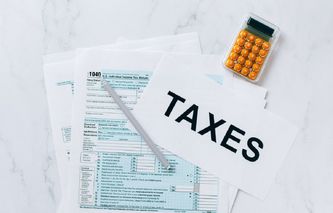 The majority of taxpayers prepare their own income tax returns, and that's the way it should be. After all, the IRS is supposed to ensure the average American understands how to complete a tax form. The Internet has made that process even simpler by providing direct access to tax preparation software programs. These applications walk a taxpayer through the process of preparing an income tax return.
The majority of taxpayers prepare their own income tax returns, and that's the way it should be. After all, the IRS is supposed to ensure the average American understands how to complete a tax form. The Internet has made that process even simpler by providing direct access to tax preparation software programs. These applications walk a taxpayer through the process of preparing an income tax return.- The term progressive tax refers to a system that takes an increasingly larger percentage of tax from groups with higher levels of income. Progressive tax systems are based on the "ability to pay" principle, which states that income taxes should be collected in a manner that is consistent with the amount of discretionary income possessed by the taxpayer.
- The term flat tax refers to a system that takes the same percentage of tax, regardless of the level of income earned. A true flat income tax does not allow for adjustments to income such as deductions. Within a flat tax system, taxpayers earning $25,000 per year pay the same percentage of income as those earning $250,000.
Income Tax Return Preparation
This first set of articles is our income tax preparation help section. Here you'll find information on filing electronically with eFile, and where you can go to find tax forms. We'll tell you how to find websites and software that allow you to file your taxes for free.
The IRS really tries to make filing your taxes simple. In fact, they offer several ways for filers to get help, including written explanations, audio explanations over the phone, and even live telephone support. If you're having trouble preparing your tax return, this should be your first stop:
- As the April filing deadline approaches, individuals look for information on the changes to the tax code, as well as what a change might mean to their individual tax return. The Internal Revenue Service (IRS) wants people to pay their income taxes on time; finding mistakes makes more work for everyone involved.
- As the April filing deadline approaches, individuals look for information on the changes to the tax code, as well as what a change might mean to their individual tax return. The Internal Revenue Service (IRS) wants people to pay their income taxes on time; finding mistakes makes more work for everyone involved.
- Taxpayers that didn’t take advantage of the IRS e-file system last year are among a shrinking segment of Americans that still file paper copies of their federal tax forms. Anyone that reads this article has access to the Internet, and the ability to file electronically.
Tax Planning
It's never too late or too early to start planning your tax-saving strategies. This next series of articles helps you to minimize your overall income taxes by discussing a series of income tax objectives and tactics you may want to adopt.
- Every year, taxpayers go through the ritual of gathering the information needed to file their federal income tax return. Once completed, those records are often filed with those of prior years.
Tax Deductions, Shelters and Credits
If you're wondering if you have enough tax deductions to beat the standard deduction this year, then this next set of publications can help. Itemized deductions are pretty straightforward, especially for homeowners paying a mortgage and property taxes.
Here we provide you with an explanation for each type of deduction and tax credit offered:
- Anyone that uses part of their home to conduct business may be eligible to take a home office deduction on their federal income tax return. The requirements are fairly simple and the deductions are reasonably generous.
- Generally, a tax shelter is a program that allows individuals or businesses to permanently reduce or defer the payment of income taxes. These programs are not right for everyone; even legitimate ones involve a level of risk that not every investor will be comfortable undertaking.
- The American Recovery and Reinvestment Act of 2009 contains a number of tax relief provisions aimed at saving both individuals and families money over the next several years. In total, there are ten different provisions under this economic stimulus package that can help lower the tax burden of many Americans.
- The best approach to tax planning is starting early in the year. But it’s never too late, even as the April tax filing deadline approaches, for some last minute tax savings tips. After all, a taxpayer’s obligation is to pay their fair share of income taxes, and not a dollar more.
- The finance term abusive tax shelter refers to a transaction that serves no other economic purpose other than lowering the amount of taxes owed. Abusive tax shelters typically take the form of an investment scheme that claims to be able to reduce the level of income taxes paid without changing the value of the taxpayer's assets or income.
- The Alternative Minimum Tax isn't something new; in fact, it first appeared on tax forms back in 1978. The American Taxpayer Relief Act of 2012, or ATRA, significantly changed this tax, but its purpose is still confusing to many.
Special Tax Topics
In this section of our tax publication, we take a quick look at several special tax topics. Presently this includes inheritance tax, alternative minimum taxes and capital gains. We'll revisit this topic from time to time and continue to add more of these speciality tax articles:
- When property is transferred to an heir after the passing away of the original owner, federal inheritance tax is paid. Also known as estate taxes, inheritance taxes are calculated based on the fair market value of the property transferred to the beneficiary of the estate.
- While the activity of fraudulent offers and tax scam artists peaks around the April 15 filing deadline, vulnerable individuals are a constant target throughout the year. If offers of free stimulus and government subsidies sound too good to be true; maybe they’re not.
- The term windfall profits tax refers to a tax levied against a company or industry when they experience extraordinary profits. While rare, windfall taxes are oftentimes collected when economic conditions allow companies that sell commodities to realize above-average profits.
- The term stealth tax is a generic reference to any tax levied by a government agency that raises revenues without angering taxpayers. Stealth taxes are oftentimes hidden in the purchase price of a product so consumers are not aware of the tax.
- The term regressive tax refers to any system of taxation that causes lower-income individuals to pay a higher proportion of their income than higher-income individuals. When a tax is regressive, the average rate of tax paid declines as income increases.
- The term fair tax refers to a proposal that would replace all federal income taxes with a single consumption tax. A fair tax would apply only once at the point of consumption, and the proposed rate is 23% in the first year of the plan.
- The term ad valorem tax refers to a tax that is based on the assessed value of a property, service, or product. Ad valorem is a Latin phrase which means "according to value," and this type of tax is usually imposed at the time of a transaction. Common examples of an ad valorem tax include property and sales tax.
- The term household employer's withholding tax refers to a federal tax paid by individuals that hire people and pay them in excess of specified thresholds. Also known as the Nanny Tax, the Internal Revenue Service (IRS) considers ongoing household help an employee of the taxpayer. The IRS expects these employers to pay their share of Social Security, Medicare, as well as Federal Unemployment Tax.
- The term withholding tax refers to a tax that is withheld by the payer and remitted directly to the government entity imposing the tax. Federal income tax, deducted by an employer from an employee's paycheck, is the most common form of withholding tax in the United States.
- The term luxury tax is used to describe an ad valorem tax placed on products or services that are thought to be non-essential items. Luxury taxes are typically levied as a percentage of the selling price of the item and may involve threshold price points to trigger this tax.
Sales and Income Tax Basics
Next up are articles that contain some basic, but useful, tax information. If you've been wondering what all those tax items are on your paycheck, take a look at our payroll taxes article. We even have federal tax bracket tables, as well as information for all 50 states.
If you're planning to visit another state, we can even tell you what to expect when it comes to state sales tax:
- The term sales and use tax refers to a tax on goods and services purchased by an individual outside of their state of residence that will be consumed, stored, or used in their state of residence. Use tax is only due under certain conditions, and is only owed if the property would have been taxed if the purchase occurred in the individual's state of residence.
- You have a new job, and they’re offering $1,000 a week to start! That’s good news, but even more important than how much money you’re making each week, is how much money is making it into your pocket. Payroll taxes can take quite a large bite out of a weekly paycheck.
- According to the U.S. Treasury Inspector General for Tax Administration, over 2 million taxpayers fail to take a state sales tax deduction on their federal income taxes. This works out to nearly $4 billion in missed deductions each year.
- In this article, we’re going to discuss the topic of tax-friendly states. That point of view will be from both a residential standpoint as well as a business perspective. Taxes provide state-level governments with a source of income so they can provide the essential services that everyone enjoys. But there is no doubt that some states are more tax-friendly than others.
Real Estate Taxes
Here are several tax articles that deal specifically with real estate. We explain why property taxes are so essential to your county and town. In fact, in our tax lien article, we even explain what can happen if you decide to stop paying your property taxes:
- For many homeowners, property taxes represent a large proportion of their monthly mortgage payment. While politicians like to talk about lowering property taxes, in most towns across the nation, this tax increases nearly every year.
- The accounting term used to describe the recording of taxes that are owed to state, county, or municipal authorities, but not yet paid, is accrued property taxes. Recording expenses when they are incurred, and revenues when they are generated, is known as the matching principle.
- If you want to move to another state or simply buy some property, you need to be aware of the varying rate of property taxes by state. Each state is different, and for that reason, we have written up the guide below. Let’s jump right into it.
- A tax lien can be thought of as a claim filed against a real estate property whose owner has failed to pay their taxes. The property usually can’t be sold or refinanced until the lien is paid off.
Recent Additions
 Money doesn’t grow on trees—it grows on Jeff Bezos.
Money doesn’t grow on trees—it grows on Jeff Bezos. Lauren BedfordApril 4th, 2024
Lauren BedfordApril 4th, 2024- We all want to provide our family with nutritious and delicious food. But with rising food costs, it's easy to just cook whatever is available, even if it's not the healthiest. What if I told you that you can eat low calorie dinners for family, but not break the budget? Here are 13 low fat family meals that all cost less than $10 to make (and will feed your whole family, plus leftovers).
 Kimberly StuddardApril 4th, 2024
Kimberly StuddardApril 4th, 2024  We’ve always been fascinated by the rich—we watch them on TV, read gossip about them, and admire their luxurious lifestyles on social media.
We’ve always been fascinated by the rich—we watch them on TV, read gossip about them, and admire their luxurious lifestyles on social media. Lauren BedfordApril 4th, 2024
Lauren BedfordApril 4th, 2024 If you're anything like the millions of young Americans, you may be worried about your finances and what they're supposed to look like. If you've found yourself asking "Where should I be financially at 25," you've come to the right place.
If you're anything like the millions of young Americans, you may be worried about your finances and what they're supposed to look like. If you've found yourself asking "Where should I be financially at 25," you've come to the right place. Kimberly StuddardApril 3rd, 2024
Kimberly StuddardApril 3rd, 2024 Get a windfall? Come into a small inheritance but not sure what to do with it? Worried you're going to mess up and spend your money "unwisely"? While 10k may not seem like much in today's world, it can actually stretch fairly far (if you have a plan for it!). This entire post is devoted to the question, "What to do with 10k."
Get a windfall? Come into a small inheritance but not sure what to do with it? Worried you're going to mess up and spend your money "unwisely"? While 10k may not seem like much in today's world, it can actually stretch fairly far (if you have a plan for it!). This entire post is devoted to the question, "What to do with 10k." Kimberly StuddardApril 4th, 2024
Kimberly StuddardApril 4th, 2024 Have you come across $20,000 extra dollars? If so, congrats! But, now you have to figure out what to do with it.
Have you come across $20,000 extra dollars? If so, congrats! But, now you have to figure out what to do with it. Kimberly StuddardApril 18th, 2024
Kimberly StuddardApril 18th, 2024 As a young adult, it can be hard to gauge where you are financially and if you're on the right track. If you've asked "Where should I be financially at 23?", or any financial question in your early 20s, you aren't alone. Based on our experience and research, here's our take!
As a young adult, it can be hard to gauge where you are financially and if you're on the right track. If you've asked "Where should I be financially at 23?", or any financial question in your early 20s, you aren't alone. Based on our experience and research, here's our take! Kimberly StuddardApril 3rd, 2024
Kimberly StuddardApril 3rd, 2024 What if I snapped my fingers and granted you a $5 million net worth lifestyle? Where does your imagination take you? Are you twirling (head up, eyes closed, arms out, the whole deal) in your swanky executive home? Are you traveling the world in first class? Or maybe you’re on the bow of your mega-yacht, letting the sun hit your face and the wind blow through your hair? Dang, that $5 million lifestyle is looking pretty sweet—if all of those things were true, that is.
What if I snapped my fingers and granted you a $5 million net worth lifestyle? Where does your imagination take you? Are you twirling (head up, eyes closed, arms out, the whole deal) in your swanky executive home? Are you traveling the world in first class? Or maybe you’re on the bow of your mega-yacht, letting the sun hit your face and the wind blow through your hair? Dang, that $5 million lifestyle is looking pretty sweet—if all of those things were true, that is. Derek SallApril 17th, 2024
Derek SallApril 17th, 2024 Elon Musk makes $14.39 billion a year. This is based on his escalating net worth over the last ten years. But how did he earn all that money? And is it all in cash? Or is it tied up in company assets? Read on for the full answer.
Elon Musk makes $14.39 billion a year. This is based on his escalating net worth over the last ten years. But how did he earn all that money? And is it all in cash? Or is it tied up in company assets? Read on for the full answer. Jane TumarApril 12th, 2024
Jane TumarApril 12th, 2024- Joe Rogan doesn’t shy away from controversy on his podcast. But the man means business—and is worth a whopping $190,000,000 as we speak.
 Deepti NickamApril 4th, 2024
Deepti NickamApril 4th, 2024 - Americans’ biggest fears:
 Derek SallApril 12th, 2024
Derek SallApril 12th, 2024 - You've got $1,000. You're wondering what to do with it. You want to be smart with it and propel yourself to a brighter future (great job!).
 Derek SallApril 4th, 2024
Derek SallApril 4th, 2024 - To say the economy right now is weird would be an understatement. The stubborn inflation is finally dropping down, but the Fed still plans to increase the interest rate to achieve its 2% target. Major tech companies are announcing layoffs every day, but unemployment claims are at a record low of 3.5%.
 Deepti NickamApril 12th, 2024
Deepti NickamApril 12th, 2024 - Back in 2012, county officials in Carson City, Nevada, found over seven million dollars in gold coins in a dead man’s garage. Five years later, police discovered 20 million bucks hidden away in a bed frame at an apartment in Massachusetts. Absurd as these cases might seem, they do make you wonder—where do people actually keep their money?
 Deepti NickamApril 17th, 2024
Deepti NickamApril 17th, 2024 - The tides are shifting... Up until now, you were focused on paying down debt, career, and maybe even investing. You kept your housing to 25% of your income, your auto loans to no more than 8%. You’ve mastered cash flow management and probably don’t even have to look at your budget anymore. But now you're closing in on that magic number and you're wondering, "Where should I be financially at 40?"
 Derek SallApril 3rd, 2024
Derek SallApril 3rd, 2024  Have you noticed the extra dollars on your food bill? Or those rental prices slowly creeping up? Your mind isn’t playing tricks on you.
Have you noticed the extra dollars on your food bill? Or those rental prices slowly creeping up? Your mind isn’t playing tricks on you. Lauren BedfordApril 4th, 2024
Lauren BedfordApril 4th, 2024- To succeed in anything, you’ll need three things:
 Derek SallApril 12th, 2024
Derek SallApril 12th, 2024 - “The problem with quotations is that most of them are not true.”―Albert Einstein.
 Jane TumarApril 4th, 2024
Jane TumarApril 4th, 2024 - When you think about saving 1 million dollars in 10 years, do you think it's possible? What if I told you it was? Let's talk about the beauty of compound interest, a few years, and being diligent with your savings! It's time to figure out how to save 1 million dollars in 10 years!
 Kimberly StuddardApril 4th, 2024
Kimberly StuddardApril 4th, 2024 - Bob and Jim are identical in almost every way. They're both tall, thin, semi-athletic, they both love the show "American Pickers"....AND they net exactly $60,000 a year from their day jobs.... But they do differ in one area: How they spend their money.
 Derek SallApril 4th, 2024
Derek SallApril 4th, 2024 - Wondering what to do with 50k? What's the best way to invest 50k in the short term? Or maybe you're wondering how to double 50k with your investments? Or, perhaps you already have hundreds of thousands of dollars put away, and you just want to have fun with it! How should you spend 50k, then?
 Kimberly StuddardApril 18th, 2024
Kimberly StuddardApril 18th, 2024 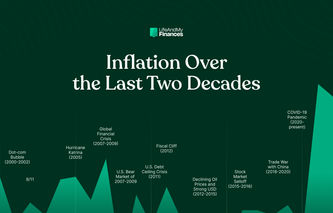 Inflation is bad. Right?
Inflation is bad. Right? Lauren BedfordApril 4th, 2024
Lauren BedfordApril 4th, 2024- Can a poor person become rich? Some of the ways you can become rich from a poor background include, starting a business, working a side hustle, creating a sellable product, investing in stocks, bonds, real estate, or alternative investments, and building an emergency fund.
 Derek SallApril 4th, 2024
Derek SallApril 4th, 2024 - Will we see an economic downturn anytime soon? Or are we running out of time for a 2023 recession?
 Deepti NickamApril 4th, 2024
Deepti NickamApril 4th, 2024 - When you think about how to make 2 million dollars, it may seem completely impossible. But surprisingly, it can be a realistic goal!
 Kimberly StuddardApril 4th, 2024
Kimberly StuddardApril 4th, 2024 - Imagine living in a city that not only sets you up for financial success but also offers a vibrant, thriving environment to call home.
 Halina GrzeskiewiczApril 12th, 2024
Halina GrzeskiewiczApril 12th, 2024 - Stashing money away for emergencies or future spending is always a great idea. But do the numbers reflect this wisdom when we look into the actual stats?
 Derek SallApril 4th, 2024
Derek SallApril 4th, 2024 - We all love to hate the ultra-wealthy—we roll our eyes at their disconnection from reality, protest about their exploitative ways, and complain about their spending habits. We’ve all been there (and bought their products)—but that doesn’t stop us from being drawn to them.
 Lauren BedfordApril 4th, 2024
Lauren BedfordApril 4th, 2024 - Have you ever started talking with someone about money and thought, "This person really has it all together"? ...and then later realized they waste their money by going out to lunch every. single. day. ?
 Derek SallApril 4th, 2024
Derek SallApril 4th, 2024 - From spending your younger years in a WordArt-induced haze to typing up essays in the library like it was your job, we’re all familiar with Microsoft.
 Lauren BedfordApril 5th, 2024
Lauren BedfordApril 5th, 2024 - If you were the first human being on Earth (roughly 300,000 years ago), working tirelessly every day from the dawn of time, making a reasonable $1,350 a day—you’d barely reach Elon Musk’s net worth by now.
 Jane TumarApril 18th, 2024
Jane TumarApril 18th, 2024 - Trying to grasp how much a billion dollars is—let alone hundreds of billions—is like trying to comprehend the number of stars in the universe.
 Jane TumarApril 12th, 2024
Jane TumarApril 12th, 2024 - If I had one dollar for every time I heard someone complain about Jeff Bezos—I still wouldn’t be as rich as Jeff Bezos. But, at least some of us can say we’re closer to being a millionaire than he is.
 Lauren BedfordApril 12th, 2024
Lauren BedfordApril 12th, 2024 - This last year, you earned $60,000 at your job, made $5,000 in the stock market, but......you lost $8,000 and you didn't even know it! Kind of hard to believe, right? That you lost $8,000 and you didn't even realize it?
 Derek SallApril 12th, 2024
Derek SallApril 12th, 2024 - The world gains a new billionaire every 17 hours—and this timeframe only keeps getting shorter.
 Jane TumarApril 5th, 2024
Jane TumarApril 5th, 2024 - Personal finance bloggers are in love with the topic of net worth these days. It's their main measure to see how well you're doing financially, but is it really the right measure? Is there something else better out there? I certainly think so. Ask me, and I'll tell you to focus on your future value.
 Derek SallApril 18th, 2024
Derek SallApril 18th, 2024 - It might be a bitter pill to swallow, but you and I are much closer to becoming homeless than turning into the next Elon Musk—with plenty of Americans being one medical emergency away from homelessness.
 Jane TumarApril 12th, 2024
Jane TumarApril 12th, 2024 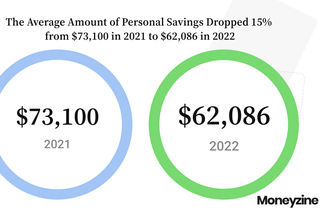 Almost every survey shows a high interest in learning personal finance in formal education and many people admit they need help. How confident are you in your personal finance management skills? You think you do a better job at planning and budgeting your funds? Check out the latest stats about personal finance and see how do you hold up compared to the average American.
Almost every survey shows a high interest in learning personal finance in formal education and many people admit they need help. How confident are you in your personal finance management skills? You think you do a better job at planning and budgeting your funds? Check out the latest stats about personal finance and see how do you hold up compared to the average American. Darko JacimovicFebruary 14th, 2024
Darko JacimovicFebruary 14th, 2024 Credit cards are magical pieces of plastic that allow us to buy things we can’t afford with money we don’t have. Because of their magic, according to credit card statistics, more than half of Americans have credit card debt that will take years to pay off.
Credit cards are magical pieces of plastic that allow us to buy things we can’t afford with money we don’t have. Because of their magic, according to credit card statistics, more than half of Americans have credit card debt that will take years to pay off. Darko JacimovicDecember 5th, 2023
Darko JacimovicDecember 5th, 2023 You can probably guess that in a world with an almost 8 billion population, at least a few million people would have at least a million dollars in their accounts. Well, you’ll be pleased to know that there are enough millionaires all over the world, that if they decide to have their own country, it would be the world’s 25th largest country by population.
You can probably guess that in a world with an almost 8 billion population, at least a few million people would have at least a million dollars in their accounts. Well, you’ll be pleased to know that there are enough millionaires all over the world, that if they decide to have their own country, it would be the world’s 25th largest country by population. Darko JacimovicFebruary 14th, 2024
Darko JacimovicFebruary 14th, 2024- Companies and individuals could both benefit from accountants, making these experts wanted worldwide. Learn about the current trends, such as shifting to remote work and a modern accounting approach.
 Aneeca YounasDecember 5th, 2023
Aneeca YounasDecember 5th, 2023  Keith HodgesDecember 6th, 2023
Keith HodgesDecember 6th, 2023 Moneyzine EditorDecember 5th, 2023
Moneyzine EditorDecember 5th, 2023 Keith HodgesDecember 6th, 2023
Keith HodgesDecember 6th, 2023 The latest cryptocurrency statistics show that the growth of everything related to the blockchain network has been dwindling across the world. Regardless, the top cryptocurrencies and markets are still holding their own.
The latest cryptocurrency statistics show that the growth of everything related to the blockchain network has been dwindling across the world. Regardless, the top cryptocurrencies and markets are still holding their own. Martynas PupkeviciusFebruary 14th, 2024
Martynas PupkeviciusFebruary 14th, 2024- If you start investing at an early age, then you also have time working for you. That's one of the reasons we are a big proponent of starting your investment portfolio early in life. To help get yourself, or your children, started down that road, we have the following publications to choose from:
 Moneyzine EditorDecember 15th, 2023
Moneyzine EditorDecember 15th, 2023
Financial Dictionary
Finally, we've supplemented our personal finance section with a financial glossary that helps define some of the more confusing terms you'll encounter in this area. For example, when you're buying a home the real estate agent will talk about closing costs and your attorney will mention a deed. It's nice to know what everyone's talking about when you spend so much money.
We've also defined terms that you'll come across whether you're buying a car, purchasing insurance or applying for a student loan. Our financial dictionary contains 100s of the most common terms you find in these areas.






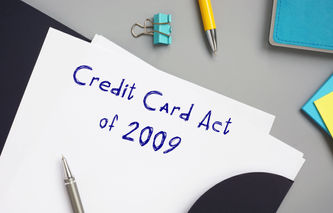

























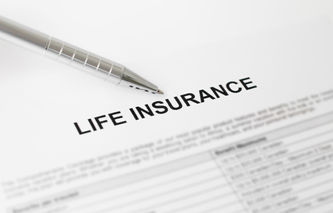



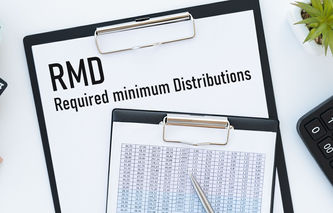

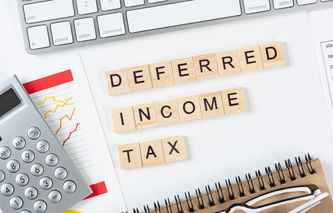





.jpg)
.jpg)